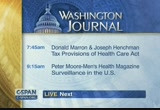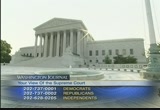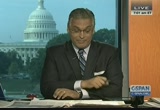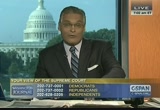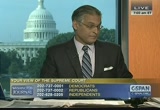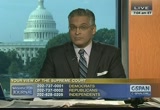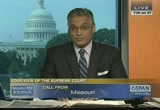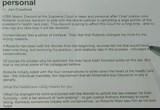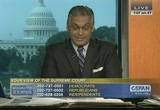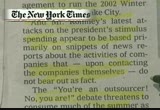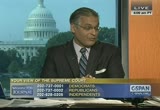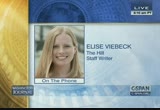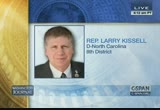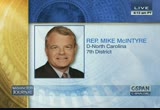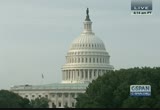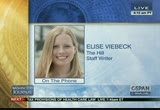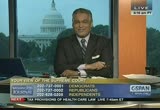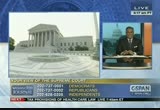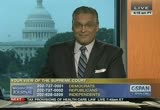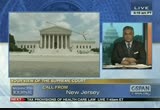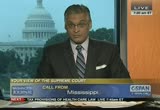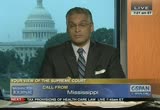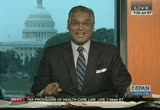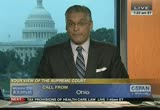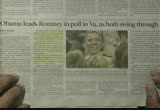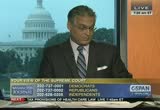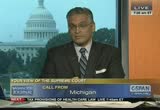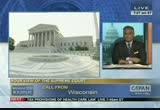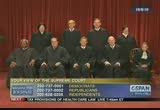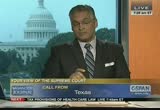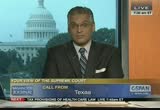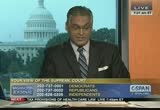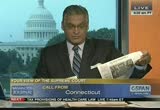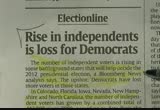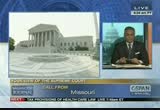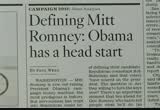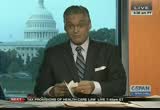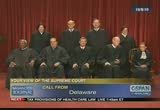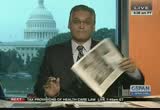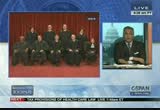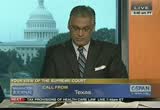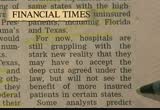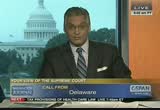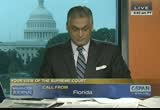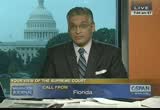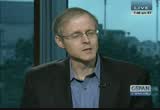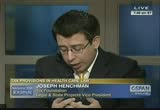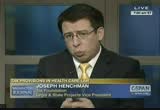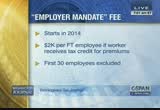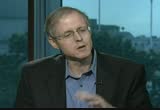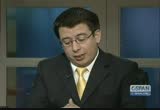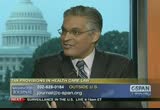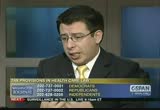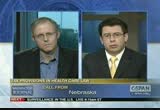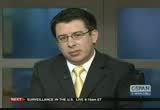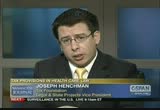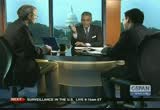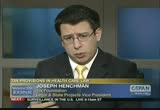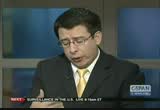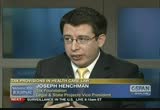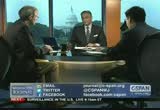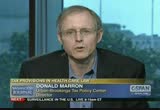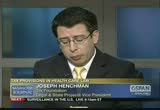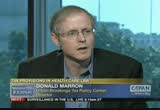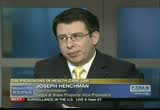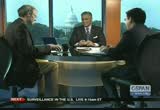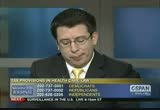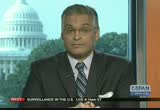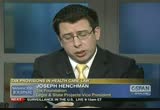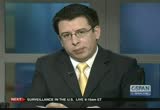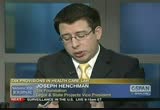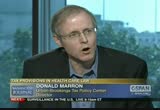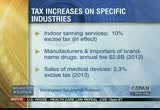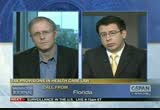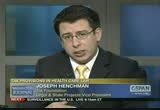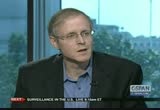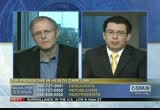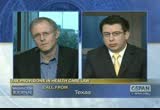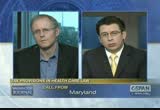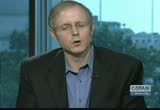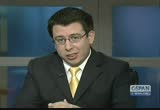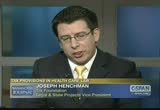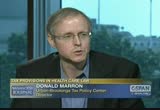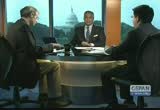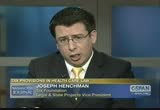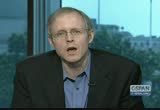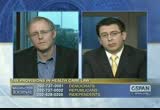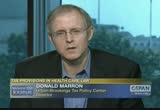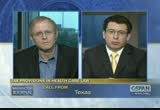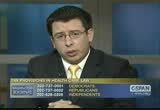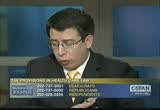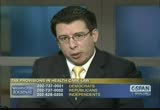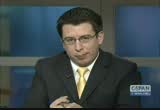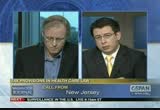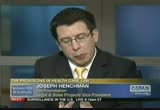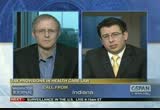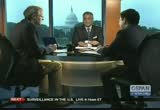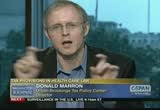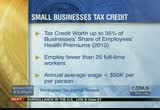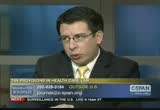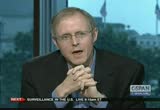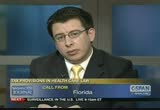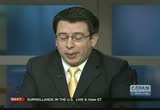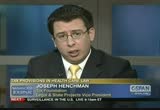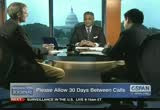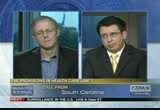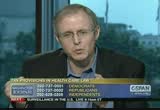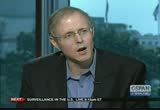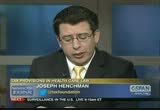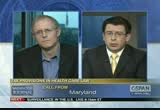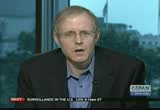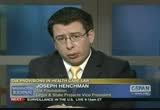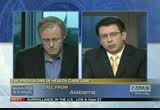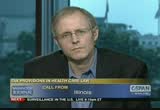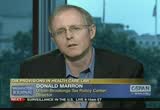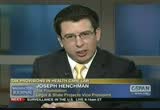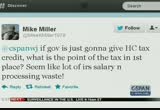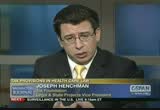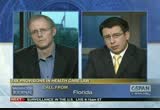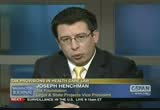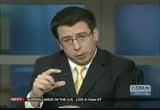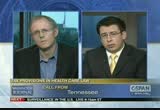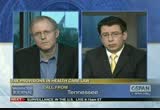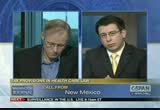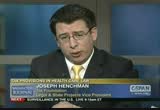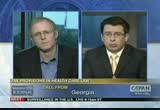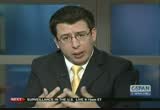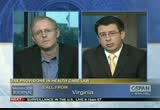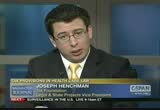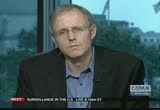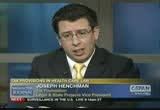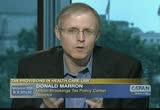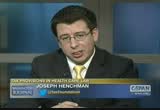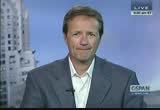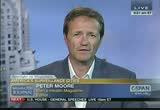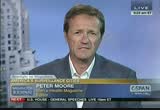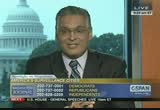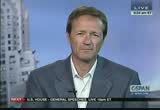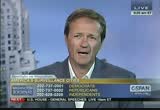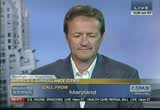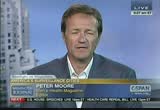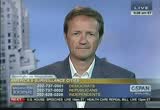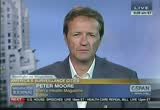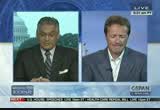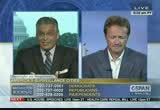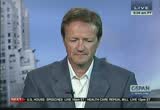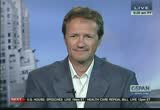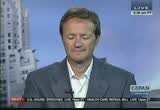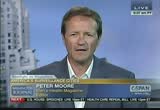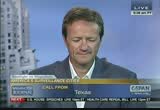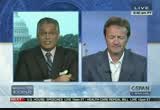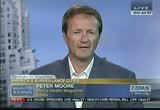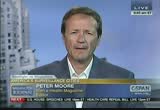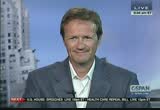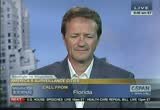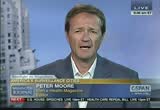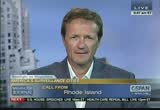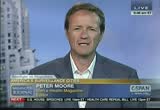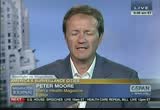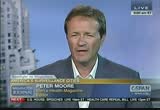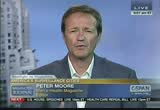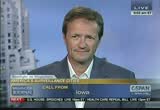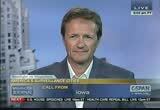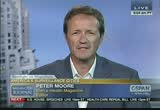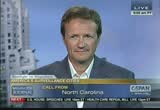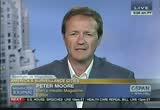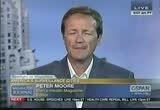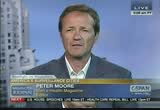tv Washington Journal CSPAN July 11, 2012 7:00am-10:00am EDT
7:00 am
urban brookings tax center and the tax foundation. at 9:15 eastern, we will be joined by peter gillmore, editor of ""mens "magazines . [captioning performed by national captioning institute] [captions copyright national cable satellite corp. 2012] [captioned by the national captioning institute --www.ncicap.org--] host: president obama meets with democratic leaders at the white house. the agenda toshes discuss the agenda for the next few months. and the president's proposal for small business. this meeting comes as house republicans plan to take another attempt at repealing the affordable care act, some democrats will vote with the republicans. and this vote comes in reaction to the decision by the supreme court on upholding the affordable care act. not all the cases have been heard by the court. we're interested in hearing from you on your view of the supreme court as a whole. in case you whey be reacting to
7:01 am
the case on health care, you may be reacting to immigration, maybe the case on citizens united, we are interested in your opinions and here's how you can join us this morning -- host: as you can imagine, several polls were taken on the affordable care act and these polls take a look at the court as a whole, which is why we're asking you to weigh in conducted by c.n.e. -- cn zphrks o.r.c.
7:02 am
here's one question. do you approve or disapprove of the way the supreme court is handling its job? at the time this poll was taken, overall, 53% say they approved of it. for those who disapprove to that, 43%. >> in general, do you think the current supreme court is too liberal? too conservative? or just about right? when this poll was taken, 30% said it was too liberal, 22% said it was too conservative, 46% of to the weighing in say it was just about right. some thoughts in mine as you call in this morning to give your assessment of the supreme court in light of its decisions, here's how you can do so. give us a call in one of three lines on your screen --
7:03 am
host: chris burton weighs in as well. he says nine uneelected politicians in robes. that's what his assessment of the court is. you can give your thoughts on one of those as you see there, a picture of the nine supreme court justices and this was their annual class photo as it's known as. but your assessment of the supreme court. we will take those calls in just a moment. starting with st. louis, missouri, keith on your democrats line. go ahead, keith. you're on. caller: yeah, hi. i watch the c-span all day yesterday, watching the debate on the health care. i just think that -- i'm so angry even when i listen to your
7:04 am
-- i watch your show every day. this is my first time i'm calling in. i could hear the anger in team's voices when they're calling in. i watched this thing yesterday and to me, it's a debate -- they go back and forth and they -- the debate on what each others say. it's a big waste of money. 31 times these guys have tried to repeal this law. instead of trying to find jobs. i mean, i wonder how much -- one such debate, how much that costs the american people times 31, instead of getting together and stop locking the jobs bill and -- host: before you go any further, keith, you're talking about the vote on repeal today? caller: yeah. host: what do you think about the court as a whole? >> i'm really disappointed in
7:05 am
the decision to allow a corporation to spend as much money as they want to spend. what they should do is vote on a cap. you know like $50 million. this is what you get to run for president. bing, you know? and maybe give them a cost of living of increase, whatever you would call it, you know, each year it would get a little higher or something like that. but to raise $1 billion to run for president is just absolutely ridiculous. host: so the court making that decision, if you had to frame it up on the court itself as it stands, how would you phrase that? guest: well, i can't use that language. but the last decision about upholding the affordable care act was -- i'm glad that they
7:06 am
did that, but if it went the other way, what would the republicans be saying now? host: there's one respondent on your view of the supreme court. give us a call or you can reach out to us on twitter, on facebook, and e-mail as well. jane crawford talks about this court as a supreme court. the headline for this story says it's deep and personal and she writes that this court at the court is after chief justice john roberts' decision. this court is going to affect for a long time and no one has any idea how it would be resolved. conservatives feel that roberts changed his mind for the wrong reasons. if roberts had been with the liberals from the beginning, that would have been one thing. but switching his position and relatively late in the process
7:07 am
infuriated the conservatives. it's unclear why he switched. he may have been focused solely on the law. you may be interested in finding out the tax provisions that come under the health care law. you can join us at 7:45 this morning. we're going to have two guests to talk about the specific ways, the tax structure work within the affordable care act. some of them affect individuals. some of them affect employers. some of them affect everybody else. but you can learn more about the tax structure. that conversation will start at 7:45. again, 202-737-0001 -- we're interested in your views of the supreme court and there are a couple of stories this morning taking a look on the campaign 2012 trail. this from the "new york times" this morning saying that mr.
7:08 am
obama and mr. romney trading shots. a few possibly accurate on outsourcing. a term you've heard several times over the last few days when it comes to the campaign. this is michael sheridan writing -- in both cases, there are deep questions about the fundamental truth about the argumenting even as the campaign continues to press forward with its charges. mr. obama's attacks has been relying on outsourcing that took place when the candidate was an absentee owner of his firm lefting day-to-day management to run the 2002 winter olympics in salt lake city. mr. romney's latest attacks on the president's stimulus spending is based on snippets of news reports about the activities of companies that upon contacting the companies themselves do not bear out the
7:09 am
facts. the no you are debate threat on consume most of the summer as moat campaigns battle their way in a race that polls show to be tied. you may be interested in going to our facebook page about 17 hours ago. as we occasionally do, will post polls taking a look at decisions or questions and things like that. today's question is on there. if you want to weigh in on that. there's also a question do you support or oppose the 2012 health care law? it stands about even right now when it comes to those who support and those who oppose. if you want to weigh in on that poll, you can go to us at facebook.com/c-span and you can give your opinion on that. the other question on the repeal vote that takes place in the house of representatives scheduled for today. a repeal vote of the affordable care act to give us a little
7:10 am
sense of what is expected today, elise vebeck of the hill joins us. elise, could you tell us in a sense, what's different about today maybe than the other 30 or so attempts at repealing the affordable care act in the house? >> we're seeing this about two weeks after the supreme court issued its decision upholding the affordable care act calling it constitutional with the exception of one very small section which came as a great surprise to republicans. i think many republicans were expecting and preparing for the supreme court to at least strike down the individual mandate to buy health assurance. and -- insurance. and outside the court, there was a lot of disappointment among tea party opponents of the law and what the house g.o.p. is do
7:11 am
another symbolic gesture to say yes, we are still very much oppose odd this law even though the supreme court upheld it and what they've been saying is their remedy now is political. they want to motivate their base. they want to make sure that republicans are turning out in november so that if the g.o.p. sweeps the national election, they have a chance of repealing the law legislatively. >> so speaker baner and others talking about their decision to go ahead with this vote. what's been the reaction from the democrats so far as far as the attempt? >> it's interesting because the supreme court's decision uphelded the party's messaging war. and the democrats have been running with the line that the american people are tired of these votes, that will there's are bigger issues that they need to be addressing and to spend more time on trying to appeal health care, a vote that will be going nowhere is not what americans want. that's what democrats have been
7:12 am
saying. we are still seeing, as you mentioned, that americans are very closely divided on the affordable care act and that's been the case since it was passed. but political independents are actually saying that they wish that leaders on the right would move on to other issues. so i think democrats are seeing that and they're gauging how they want to appear before november and they want to be the party of moving on. host: one of the things that you wrote in your story yesterday, taking a look at this was possibly democrats voting with the republicans. one of the names mentioned is larry cassel of north carolina. guest: that's right. originally, he did not back the repeal attempt. this is the second time that republicans have tried to repeal the entire health care bill. so as you said, there have been
7:13 am
more than 30 attempts to do various things to it, get rid of this or that. but yeah, so he came out a couple of weeks ago in a local paper saying that he was going to support repeal this time and he also made headlines for refusing to endorse president obama. so this is just a case of a blue dog democrat trying to do what's best for perhaps his re-election chances. certainly in north carolina is his state where we see this happening more and more with democrats who are receiving pressure from the right who believe their seats are threatened and he's just doing the best he can. host: what's the story behind another name mentioned yesterday was representative mike mcintyre of north carolina? guest: that's right. i believe their districts -- they're neighboring districts. mike mcintyre voted for the first repeal. we expect him to probably do the same this time. i don't think we are going to
7:14 am
see any democrats who supported repeal the first time, renege on that support this time, even though it's likely at this point that most to the affordable care act will stand barring a major republican sweep of elections in november. but mike mcintyre said he would be supporting repeal again and we can expect to see that in his vote today. host: so we have two that definitely say that -- indicated how they're going to vote. what about other democrats? are -- are there some on the fence? guest: we've been trying to break down that number but it's difficult. they have been avoiding our inquiries. they're not interested in talking about this, especially with national media. they're interested in testing their vote -- casting their vote today and keeping it very quiet. we were inquiring with jim matheson of utah with joe
7:15 am
donnelly of indiana. and neither of them are really -- are being very forthcoming about what they'll do. host: and so the democratic leadership is currently whipping the democrats to fall in line against it. guest: that's right. they are whipping against it and republicans are not firmly whipping against it. they believe they're going to have more democratic dissections and they will lose no members of their party. host: do we know what time this vote is expected? caller: -- guest: i don't at this point. schedules haven't been released but you can expect quite a bit of probably heated debate before hand. in the rule yesterday, governing debate, they allotted about five hours of debate, which is quite a bit given that they've done this before. and so i believe it'll probably come in the early afternoon. host: and that's elise viebeck who writes for the hill.
7:16 am
thanks for your time this morning. guest: thanks. host: your view of the supreme court in light of the decisions made in this term. facebook is where you can go. there are several people weighing in this morning. let me read you a couple. edwin christian says this morning the supreme court is an extension of everyday politics where they serve for life. they seek ways to keep the political turmoil in full boil. scott king saying i do think that it is overreached since marrbury vs. madison. and bryan hughes saying chief justice roberts surprised a lot of people. we may never know what really went on in the heads of the justices. one thing looks evident after he changed his mind after others already made their decision for what it's worth. your thoughts always welcomed as well.
7:17 am
let's go to new canada, maine. john is on our independent line. good morning. caller: good morning. i don't particularly care for this hett bill either, but justice roberts did the right thing. it goes back to the congress and the senate and this is checks and balances. i don't know what people expect from the supreme court. this is going back, i don't know what his first -- the second term or something else like that but people got to learn -- they've got to go back to school learn civics in government. i can't believe people don't know anything about this. host: so if the vote would be the other way, you talk about
7:18 am
upholding the dignity of the court, would you feel the same way? caller: he's being impartial. he's just doing what he's got to do as a supreme court judge. he's interrupting the law. the supreme court justice are all interrupting the law. once they interrupt it, then if there's something -- if people think there's something wrong, it goes right back to the congress and this is what we call checks and balances, ok? and the congress either repeal it or whatever and then it goes to the senate. you know, people got to get an education, my god. it's bad out there. host: have you followed the supreme court more many this term than in previous terms? caller: no. i follow it all the time. i watch c-span a lot. i try to keep up with things and i read a lot too. this is what -- people are not educated about the government. they better get back to, you know, you've got a lot of fanatics out there that for the republicans. you've got a lot of fanatics out there for the democrats.
7:19 am
host: thank you. that's john from maine. thanks for calling. harold, republican line. hi. caller: hello. host: you're on, sir. caller: here's what i really think. the supreme court should simply do its job. number one, it should never ever pass legislation. number two, it should never lecture the american people. that is not their job. and obviously, it should never violate the law, especially regarding article 10 which is the state's rights. they should never ever take away -- all they should do is say -- is just do their job. is this constitutional and it's also very nice to say does this do anything to advance what our country is founded on, life, liberty and he pursuit of happiness. at least they don't say god bless america. what we should obviously do, our
7:20 am
country was based on the 10 commandments. they could also say does this violate the 10 commandments? they do not give god any right. god has certain rights. what he wants to do is give us the -- divine love. he wants to give us progressive derble care. host: you say the supreme court should do its job. if you think it's doing its job? caller: it is not doing its job. it should not do anything except two things. is it constitutional and does it advance liberty and freedom? caller: i think john roberts made a courageous decision in regards to the health care law. i think citizens united
7:21 am
undermines people's -- undermines democracy here in our country and all this money going on into these candidates literally buys them off to pass these big corporations agendas through and as far as this vote going on today, it's absolutely appalling. this congress has been on one long lame duck session and they've got such a low polling rate that people need to get on out there, they need to get on and vote and they need to vote these people off and the very first gentleman that called in. he was correct in saying they should be working on jobs bills. there's been three jobs bills put in congress and they've done absolutely nothing to earn their paycheck. host: so you cited a couple of supreme court cases. give us your assessment of the court as a whole. caller: the court as a whole, i think like i said, i literally admire john roberts.
7:22 am
that took a lot of courage to do what he did. he's a bush-appointed judge. and -- >> but the whole nine of them. how do you think they work as a body? caller: i don't believe in term limits for the supreme court because i think there would be repercussions of the decisions that they make, however, i would like to see more justices who help balance on out this court. i don't feel that it is appropriately balanced. i feel like there's too much on the left and too much on the right and some of them are so so far to the right that they won't balance out to the middle.
7:23 am
host: columbus, ohio. you are up next. terry, independent line. hi. caller: hi. my comment would be i'm not so sure justice roberts kids not make a -- did not make a conservative decision on the health care act. nobody has seen fit to say anything about his comments on medicaid and what that might do to limit or even eliminate the right of poor people under this health care bill to get any medical at all. let alone good medical care. and secondly, he basically in supporting the mandate gave corporations the right and the government the right to demand that people give our corporation a profit regardless of whether they do anything to earn it. host: how would you sum the
7:24 am
supreme court in one word? caller: i don't know. i can't think of a good word for it. host: how about a short -- how about a phrase? caller: um, it's been -- to me, it's been radicalized to the far right drastically. host: terry from columbus, ohio. a couple of political stories as you're still calling in on your view of the supreme court. trip gabriel. romney makes push for black voters. he faces challenge in generating the same enthusiasm as in 2008. the level of black turnout could be crucial. the black voters and an outside influence in the president's relatively narrow victory four years ago. that's "new york times." the "washington times" this morning takes a look specifically at virginia saying mr. obama lead mr. romney in a poll there as both plan to go
7:25 am
through the state. it says he's set to make a two-day swing to go through the states with scheduled stops in roanoke, virginia beach and hampton on friday. his campaigns by circulating around the state is part of a massive get out the vote push among the republican national committee. the romney campaign, his trip could steal some of the media spotlight of bob mcdonald. they're holding their annual conference in williamsburg. franklin, indiana, nate from the republican line. caller: good morning. if you're a young person and you're healthy, and you decide to pay your own cost of medical bills and doctor bills because it's cost-effective instead of paying a lot of money for insurance. the democrats and the president calls you a free loader. you decide to pay your own bills instead of using an insurance
7:26 am
company, but to them, you're a free loader. this is the largest tax increase on the young and the middle age and it's all because the government wants to take over their health care. they want to control our health care. i'm 76 years old. host: what do you think about the ski resort? -- supreme court? caller: the supreme court made a mistake. this bill should have been rewritten as a tax. host: you said the supreme court made a tax and you said the supreme court is about right, you said? caller: yeah, but they're not infallible. host: flint, michigan. good morning. curtis, democrats line. caller: yes. when they named george bush over gore for president, oh, it was the best thing since sliced bread. now supreme court please the republicans every right. and i think the supreme court got this one right. and i'm for the supreme court.
7:27 am
like clarence thomas, we can't get rid of him for nothing. host: so when you say they're about right, elaborate on that. caller: i think they're about right. they get it right. and i think the supreme court do the right thing most of the time. i give them credit that they try to do the right thing. i think they are right. host: stevens point, wisconsin. andy, independent line. hi. caller: hello, pedro. i would like to say the supreme court is wrong on several different levels. first of all, i don't agree with a lot of decisions they've made. republicans are supposed to be really big about states rights but they turned the marijuana bill in california. since united, i can go on and -- citizens united, i can go on and on. one thing that disappoints me is the way they coerced the -- the cases are chosen that the court actually looks at. as i understand it, this is
7:28 am
actually chosen by a first-tier lock horse -- host: i don't know for sure. but go ahead with your thought. caller: as i understand it, the cases which the supreme court actually looks at are decided by a group of lock horse are first-year law students that get chosen, i don't know how. i'm guessing you buttered the right bread, you get in there. and it seems to me that's a overlooked process. how do cases get seen by the supreme court? i like suder. and i like the fact that roberts is going to vote republicans or conservative no matter what. host: were you surprised by the roberts decision on the affordable care act? caller: oh, yes. i thought he was going to be one huge rubber stamp. but i think the court in general
7:29 am
has problems that most people don't even know about. host: what do you mean by that? caller: well, you know, i think that basically they don't really have to go by the law. there's so much law that you can basically pick and choose, cherry pick to make your points. citizens united and using the interstate commerce to strike down medicinal marijuana in california seems ridiculous to me. host: are you concerned how they function at all? caller: yes, especially with citizens united. that decision is incomprehensible to me. host: fort worth, texas. caller: i disagree with the decision and i think it's more about, you know, what the doctors need and not what insurance companies need and i think, you know, they've got to
7:30 am
have a term limit for them judges and they ought to be elected by the people and not by one party or the president, you know. host: why would that change things? caller: because then the people have the power instead of the president having the power. and that's the way our government's supposed to be. it's supposed to be -- the government's supposed to represent us and they're not doing that. host: mckinney, texas. this is corina, democrats line. caller: yes. this is corina. i was calling to actually hear -- for everyone that's speaking about the medicare and who should -- let's say over what. but i believe the government stepping in and trying to do something for people such as myself who do not have, you know, medical insurance is very, very happy because of the obama act -- affordable act. i think it's great.
7:31 am
i think the republicans doing what they do is actually is just a waste of time for taxpayers. most on a personal level. and other levels. it's ridiculous. it is outrageous. host: so your thought on the supreme court? caller: the supreme court i think they're doing a great job but the thing is they should not continue to allow this thing to go through for 30 seconds. you have so many other things you need to be focusing on such as jobs or young college people trying go to school make a living and health and medical insurance. if republicans continue to do something to raise more money, that money should be put back into, you know, split up properly. host: that's creany from -- corina from texas.
7:32 am
mervyn saying from e-mail saying it's understandable that judges will hold personal and political views. it is unfortunate that the perception is common that several supreme court judges are now fair-minded. this is d.w. from seattle saying my view from the supreme court is simple. too many judges. you don't need to be a lawyer or a judge to be on the high court. the goal is to function without the pressure of the security of maintaining a position. this goal has been corrupted over time. we should appoint people who have not made an impact on the direction of our civilization, not senior judges. good morning to lou, independent line from connecticut. caller: what's happened with the supreme court and affordable care act, number one, this legislation should never went to supreme court because the legislation is unconstitutional. the federal government is so big
7:33 am
and so massive it's destroying this country. health care used to be affordable in this country. college education used to be country until the congress stuck their nose in it. government doesn't work. you have to have your head examined. host: lou, before you go too far, supreme court. what do you think about it? caller: i'm not surprised this happened as far as affordable care act. it's democrats and republicans. and i'm just not surprised by anything that goes on in d.c. washington, d.c., the belly of the beast. it's going to destroy this country and i'm already contemplating if this continues, and my house is paid off, get out of here before it's too late in a tropical island. host: that's lou from connecticut. a story from the "u.s.a. today". the number of independent voters
7:34 am
is rising that will help decide the 2012 presidential election. a analysis says the upshot, democrats lost more voters in those states. in colorado, florida, iowa, nevada, new hampshire, and north carolina, the number of independent voters has grown by a combine total of 443,000 since 2008 according to data and at the same time, the bloomberg analysis those democrats lost 480,000 voters in those six states while republicans picked up 38,000 voters. that's from "u.s.a. today." their election line column. kansas city is, missouri. hello, dorothy, democrats line. caller: yes, good morning. host: good morning. caller: on the supreme court, i think they get it right sometimes and they get it wrong sometimes. this time, i think they got it right. it's hard to make changes, but if there had not been a change, everybody wouldn't be getting social security and medicare.
7:35 am
and as a senior, if you go into the coverage gap, you really have some trouble but i think they got it right this time. it's the conscious of man that can change the system and i find out nowadays, we have people that don't have a conscious or a passion for helping other people. and that is really our country's downfall. host: at about 10 minutes or so, we're going to learn about the various tax provisions within the affordable care act discussing not only how it affects individuals, how it affects businesses, how it affects employers. so we're going to have two gentlemen on the program to work through those and explain those things to you. up until then, you're getting your view on the supreme court. don't forget. the repeal vote on the affordable care act takes place in the house of representatives today. "los angeles times" as part of their campaign coverage, paul west saying obama has a head
7:36 am
start. he says mr. obama's attack on romney's personal wealth are hurting the g.o.p. candidate says strategists in both parties. too much negative ads some of them criticized by independent arbiters have taken their toll on romney's standings. even if the election overall remains up for grabs, and more recently, democrats led for mr. obama himself have demanded that romney release more of his tax returns and fired a new bank account. a spokeswoman dismissed the attacks as unfounded character assault by mr. obama to change the subject in the face of the president's high joblessness and a weak economic recovery. this is jim, republican line from delaware. caller: good morning. i didn't know if i spoke or if i
7:37 am
waited or -- host: you're on. go right ahead. caller: on the opinion of the -- host: yes, you're on. uh-uh. ma'am, go ahead. stop listening to the tv and just go ahead with your thought. caller: oh, ok. i think that the supreme court has become much too legal-minded. they do need to put some people on there who will express the views of the people in general. i don't think that the american voices were heard in this decision. i also think that when they address the results of something the way that they are with this bill saying the american people, the american people, i haven't heard anyone address how illegal aliens are going to be treated, who's going to pay that bill? and why it is such a big burden for anyone to prove that he is an american citizen or illegally
7:38 am
has the right to the services that we offer. host: some international news for you this morning. david kir patrick writing in the egyptian parliament. one of three courts cover the issue later responded with a rebuke insisting the parliament deloice appeal created a mess that suggested dispute over the parliament is unlikely to end any time soon. the newly-elected president of the muslim brotherhood issued a decree calling back the lawmakers. host: hillsboro, ohio. joshua, democrats line.
7:39 am
hillsboro, ohio, good morning. caller: hey, how's it going? i think chief justice john j. and daniel webster, turning in their graves right now when they see what this supreme court has become. and hearing that from a democrat who has studied history. host: can you expand on that? caller: well, you know, the way that chief justices have been elected in the office is not the way that chief justice jon jay and daniel webster was elected in the office and the way they're handling office today and the way they're handling decision making, it seems like they've forgot about the word jump -- jurisdiction prudence.
7:40 am
host: if you want more information on romney's event in houston, go to our website at c-span.org. we will address the naacp today. mesquite, texas. hello to debbie, independent line. caller: yes. if you are a doctor and you live out of the state, out of the united states, they'll tell you if you come over here, they'll set you one a business and give you money. and i wonder how much that costs. you can la look at your phone book and you see a lot of doctors and you could see their names. but if you go to school here, it's going to be a doctor, you're not only have to pay your school, you have to pay money for a business. and i'm just wondering how much does it start cost the american
7:41 am
people to pay doctors to come over here and start their business. thank you. host: the "financial times," this is a headline. u.s. hospitals face financial crisis. she writes hospitals in some states are facing financial crisis after a string of republican governors rejected a provision of president obama's health care law that would have expanded the number of insured patients. the governors of texas, florida, louisiana, and south carolina, among others have announced they will not accept federal funds to increase their state run medical program because they are staunchly opposed to the administration's care care. the governors that have been at the forefront say no to medicaid expansion of the same state with the highest number of uninsured patients including tpwhrea and texas, hospitals are grappling with the new reality that they may have to accept the new cuts and will not see the benefits of
7:42 am
more insured patients in certain states. caller: my view is the supreme court has really not decreased since this hearing because the president has become a political animal. they totally ignore the oral arguments making the majority of the decision. and i would thought they would have dealt see the way the bill was actually passed through the congress because it was scandalous. shoved through in the midnight hour. they changed all the rules for the normal passing of bills and they used, you know, whether or not it was bribery. it is not the role of the supreme court to sort of balance and make sure that the other two branches are acting in a constitutional legal manner and i think they abrogated their responsibility to the american
7:43 am
people the this sort of decision they made this time. that's all i've got to saw. -- say. host: with a do you think as far as they continue the cases and sessions continue to go on? >> well the one who dealt with the actual issues are the people who were in the decent and we don't know what ginsburg and briar and the two other new justices really had to say as they were not part of the majority of the decision and we haven't heard much about how they looked at it. i just hope that we get some more conservative who is actually look at the constitution when they come to decision making on the court as we go forward. host: we'll take one more call. tampa, florida. paul, independent line. caller: hello? host: hi. you're on. caller: yeah. as far as what my opinion on the court is that right now, the
7:44 am
conservative justices are the only one that are saving the country from the liberal onslaught. before liberal hacks on the court, if it was up to them, first off, people are worried about this citizens united. i don't think it's that important. if it was for one thing, if money's so important to campaigns, how come 95% of black voters no matter what the -- no matter what the campaigns are, the money, 95% of black voters still voting for obama? if money's so important? that's that issue concerning the citizens united. but if you look at the liberals, what they've done, if you had ginsburg and her opinion, they said you didn't have the right to a gun. the four liberal. you didn't have a right for lib -- they were for reverse liberal and she wanted to use the commerce clause to decide the affordable care act. if we had those four -- if we
7:45 am
get another liberal hack on that court, it's the end of the united states. that's my opinion. host: and he's the last call we'll take on the topic. 60 comments or so on facebook. if you want to continue the conversation on our facebook page, it continues and also on twitter as well. you can continue those conversations about this topic. we appreciate those who called in. up next we're going to have a roundtable discussion taking a look at the tax provision in the affordable care act, the health care law. two guests will join us. and later on our spotlight on magazine segment, we're going to look at america's surveillance cities. peter moore from "men's health" for that discussion. we'll be right back.
7:46 am
>> when you realize that these armies or remnants of armies were not coming to his aid but were trying to escape to the west. that's when he collapsed when he realized finally it was going to come to end and it was a question of suicide. >> historian anthony beevor with a look at the second world war. >> his main objective was not to be captured alive by the russians. he was afraid of being spat at and ridiculed. so he was determined to die. and brown was determined to die
7:47 am
with him. >> more with anthony beevor on c-span's q&a. this weekend on book tv, growing up in the shadows and secret offense the rocky flat's weaponry facility. kristin iverson looks at the effects of people. >> carter in her opinion was mcgovern with a magnolia accent, you know, and she saw the domino start to fall during this time. and by 1979, she was in full-fledged opposition to carter in what she called was carterism, that appeasement. and particularly crucial in this respect in 1979, she saw the fall of the shaw and the fall of sammy sosa in anything ya -- nicaragua, a couple of
7:48 am
lacerating experience. >> all part of book tv this weekend on c-span2. >> "washington journal" continues. host: for the next hour and a half or so, we are going to take a look at the specific tax provisions that are located within the affordable care act. we've asked two gentlemen to join us to talk about these things. not only explain them, but particularly explain what it means for you and me so joining me right now is joseph henchman. he serves as their legal vice president. and donald marron. serves as their director. welcome. how much of the success of the affordable care act is based on the sacks structure it has?
7:49 am
donald marron? >> from a budget point of view, taxes were important for paying for the cost of the expansion of health care coverage of the tax envisions and there are some that make insurance markets work better. over the last week has been the penalties for individuals to get insurance in the new structure. and there are taxes or penalties on employers to do the same. and then also some tax provisions to help low and moderate income people get coverage. so basically tax subsidies. host: joe henchman? >> there are a lot of problematic provisions on the bit. a lot of people support the bill based on the health care provisions but on the tax side, you have some provision which is can be very problematic. the tax on cadillac provisions. a lot of people are concerned about the individual mandate and how that will take effect and the supreme court has called
7:50 am
that a tax. as well as the new investment tax that goes to the medicaid payroll. host: and so as far as the structure themselves, you've had a chance to look at them, what about the structure, particularly the tax structure that strikes you, joe? guest: well, it's not anything that i think most economists would have designed for a tax system. it relies a lot on -- let me just give one example. there's a provision in there that if a small business has over 50 employees, they have to provide health care. if they have less than 50 employees they don't. economists call this a cliff because if you have 49 employee, you don't have to comply but if you have 50 employees, you do. that could create some big incentives. if you have 55 or 53 employees, maybe you want to get rid of some of them to get below the threshold. the tax code should not
7:51 am
encourage people to make decisions like that. host: is that the employer mandate fee? guest: right. which is different from the individual mandate fee. host: you can talk about the structure or you can talk about the mandate and give your perspective on the way it's shaped. guest: well, the employer mandate, there's a challenge of how do you encourage people to get health insurance in a world where we, the united states have a significant private market? and there was a lot of desire to have health insurance structured where you can't rule out people with pre-existing conditions. it's difficult to do that. and the economic principle behind having an individual mandate and having it backed by a tax of moderate size is to encourage people to have a better functioning insurance market. host: so the employer mandate as it stands and you can add on of this gentleman if you'd like, starts in 2014. it gives $2,000 per full-time
7:52 am
employee, if the worker receives tax credit for premiums, it makes -- it will include 50 full-time employees, fewer than 50 full-time employees not affected. the first 30 employees were excluded. can you help us make sense of that? guest: the idea is a lot of americans get their health insurance from their employer today and there's a lot of concern if you stand up the new system, the exchange would have subsidies behind them that some employers would send people to the exchanges and get subsidies that would be paid for by the taxpayer. so the idea was to create a disincentive for employers to do that. and have them pay a fee, a penalty, if people, they are not providing health insurance to end up getting subsidies to the government. and there are a lot of bells and whistles in trying to target it to the folks who congress most want it. host: so 50 and below we're talking as far as employers are
7:53 am
concerned? guest: so the 50 and below is there's a credit to help small businesses provide coverage. it's targeted to small employers. guest: it's 25 and below. guest: and separately, there is a employer mandate on large businesses if they have folks who get subsidies. host: so if i'm an employer, and i have 51 employees from 51 and up, what does that mean as far as my payroll, my checking, the things i have to do when it comes to taxes? guest: you have to provide coverage. and if you don't, there's penalties associated with it. there's something i don't want to con inflate. those are in the bills, incentives. there's subsidies and incentives and we can debate whether those are good or bad ideas but those are distinct from the penalties. there's both disturbs -- disturb decides and penalties. host: and the subsidies works
7:54 am
how? guest: a lot of this, we have yet to see. the bill has just been upheld as constitutional. we're moving implementation and it's new. there's provisions about how these bills are supposed to be affected. the i.r.s. needs to figure out how they're going to be implementing all of this. whether we're going to -- and the bill may change. we've gotten an election this year. we've already people ared a few provision offense the law. more may come. host: and our guests will join us to talk about the tax provisions within the affordable care act. if you want to ask them questions, now is your chance to do so. here are the numbers to call -- again, our focus for this time is to kind of look at the specific tax provisions. the role of the i.r.s., donald marron.
7:55 am
how does it change now with the votes not upholding this bill? guest: it increasingly congress calls on the i.r.s., not just to raise revenue by implementing the tax system but to be a tool for implementing social and economic policy. and one of the main things the bill does is expand that role for the i.r.s. the i.r.s. will be in the position of distributing subsidies to employers and moderate income folks and in imposing these penalties to discourage people from not having coverage and discourage employers from not offering it. it's driving health care. host: and is the i.r.s. prepared for this? caller: i don't think they are. although they're hiring thousands of new agents to do this. they've been making the i.r.s. less a collector of revenue and more of an instrument of social policy. something we're very concerned about in the taxpayer
7:56 am
foundation. the tax code should just used for raising revenue and not change people's behavior. quite frankly because the i.r.s. is not good at it the tools that they have garnishing wages, auditing, enforcing and so forth, those are very problematic when you use them to achieve certain social policies. they are very good for raising revenues but there's a reason a lot of people are afraid of the i.r.s. and very concerned about some of the privacy issues of having the i.r.s. becoming the new implementer offense the health care law. host: our guests with us to talk about their view. carol is on the republican line. good morning. go ahead. caller: thank you. my question is if we have this law, why can't the person who does not want to be involved and mandated to pay insurance, why
7:57 am
can't they find a simple -- sign a simple form stating if they get sick, ill, or hurt in any way, if they will be totally responsibly for all the costs without any government job? host: donald marron? guest: i think the view of congress was that wouldn't be enforceful in the future and even if you can say they are not going to get government support but the private sector has a lot of responsibilities to provide, emergency care and health care and other providers seeking it. an approach like that wouldn't be enforceable. host: washington, d.c. good morning, joe. democrats line. caller: mr. henchman, how are you? guest: i'm doing well, thank you. caller: i have two questions for you. first is that the foundation is
7:58 am
listed by source watch as receiving significant support from exxonmobil and from the coach family foundations and in fact was founded by of course as you -- donaldson brown standard oil. so the question is that it is hardly an unreasonable leap to regard your organization as one that is devoted to protecting the interest of those large corporations and their tax privileges. and it's true and it seems likely to be true. host: caller, we'll let our guest respond and we'll follow up. guest: we were founded by a lot of businessmen who were concerned about making sure that americans have access to good information.
7:59 am
and our data is out there. our analysis out there. you can judge it as you want. and we get a lot of accolades from people across the aisle has having reliable work. and although we get funding from individuals and businesses and foundations, no one funder provides more than 8% of our total funding. host: so caller, what do you have a question about as far as the affordable care act? caller: well, the affordable care act is that mr. henchman just stated that he should in his organization, should with regard to the a.c.a., be regarded on the quality of the data. well, the fact of the matter is that the foundation has been criticized by -- with regard to which data on such acts by the center of budget and policy priorities, by citizens for tax justice on other areas. host: ok. we'll let that stand as we want to continue that discussion. let's go to the individual mandate penalties. some of the callers that
8:00 am
addressed. it starts in 2014 with penalty of $95. it jumps to 2015 to $325. in 2016, it goes to $695. talk about the way that'sguest:. in 2016, it will be $695. this is kind of complicated. we have a new report on our website. it gives some examples of families of different sizes and what that means in dollar terms. it is anywhere from $695 to $2,000. low-income people can be exempted. there is a cap. the amount can vary a little bit. by the time we expect it to be
8:01 am
implemented is that there will be in line on the tax form that will save please write in your health insurance account number or whatever. if you cannot provide that, you up to enter an amount on up tax line. host: how many people will be penalized? guest: cbo has estimates of that. i do not have the numbers at my fingertips. a small number of people. guest: by 2020, $4 billion per year. i think that is as good of a guess as there is. i think it will remain to be seen because chief justice robert appel the penalty because it is low. it does that cover the cost of insurance. you always want to pay the penalty rather than get insurance -- it remains to be seen how people would react to
8:02 am
those incentives, especially if costs continue to rise. host: it is not the case that you would always want to pay the penalty rather than get insurance. health insurance provides benefits and they have to do the balancing of whether they think insurance is worth the cost versus paying the penalty. host: happens if someone decides to pay the penalty? what eventually happens? aside from paying the fee? guest: so, they go each year without health insurance until they are faced with a risk that something that that will happen and they will have large health- care costs. and that they will face the issue of whether they pay it out of their own pockets or whether a hospital picks it up or whether the government pays for it. host: how easy will it be for hardship exemption? guest: i do not know. i do not. they do not make it very easy. at the same time, the irs is
8:03 am
limited in the things they can do to enforce collection of the tax. they cannot garnish wages or pursue criminal penalties. certainly, no good lawyer or accountant would advise not to pay it. a lot of the normal legal consequences that happen when you do not pay a tax will not follow for not paying the individual mandate. if you have 30 million uninsured people who it made the decision they do not want to buy health insurance in the current market, what will happen if they pay the penalty instead of getting insurance? people will still show up and get care that they are unable to pay for. will there be pressure to raise the penalty above what it currently is? well that raise new constitutional questions? host: new jersey. jeremiah . republican line.
8:04 am
good morning. caller: have a question regarding two words in the bill. one is that it will take effect in 2013 as a real estate tax. 50%. the other point is in 2018, there will be 40% excise tax. i do not know if you have information on that. that is all i have. guest: let me start with a realistic one. this turns out to be a misconception. what the act has that starts january 1 is a new tax on net investment income of high income folks. high income is above $200,000.20 and $50,000 for a married couple. 3 play per cent and on your net investment. -- 3.5% on your net investment. the question is how will this apply to realistic? the answer is when people sell
8:05 am
their homes, their realize -- realize capital gains but most of them are exempt from tax. this will only be an unusual situation for a person who has more than $500,000 gain on their house and is above the threshold that will face this 3.8% tax on the increment of their capital gain. >guest: right now, capital gains are taxed at 15%. at the end of the year, the tax cut to expire and that will go up to 20%. this new tax will kick in which will raise it to 23.8%. we are talking about a significant increase on capital gains. and evidence will go up to 39% with the expiration of the bush tax cuts. this is just the beginning. massachusetts, when they enacted their health care law expanding coverage and paying for it out
8:06 am
of the public budget, they ultimately had to raise their sales tax from 5% to 6.2% to pay for it. the whole act is premised on the assumption that it will reduce health-care costs going forward. if that is not the case, we will see fiscal pressure to see tax rates going up. >host: one of the other things is 0.9% medicare payroll tax on earned income in excess of $200,000 for an individual. can you put that into perspective as far as people will pay that? guest: you pay social security income taxes on your income. in addition, there is a medicare tax that applies to your earned income. with the bill that was increase that tax rate by 0.9% for folks who earn above $200,000 level. it is a significant tax in the
8:07 am
neighborhood of $100 billion of revenue that will pay for the health care bill. host: is that alongside the 3.8%? guest: the 3.8% is a normal income tax that goes into general revenues, despite being named having something to do with medicare. that is not true. the payroll one goes into the medicare trust fund. excise tax -- exc this is too much coverage. insurance companies that offer those offers will have to pay 40%. it a very hefty amount of money. all of these taxes, you can see how they would affect your bill on our website. we have a to a calculator where you can put in information about yourself. we do not keep it. you can see how it will affect
8:08 am
you. host: florida. independent line. caller: good morning, gentlemen. i have not seen this any place else. there are 21 new taxes in the .a. bill that will affect middle-class as well as the high earners. has anyone figured the total tax bill for someone that is in the hundred thousand dollar income range? guest: that is tough to do. i would invite you to go to our website. enter in your information and see all the taxes that would affect your personal information. there are taxes that apply to high income earners, middle income earners. almost everybody is affected by this bill. host: are consummate, kansas. -- arkansas, kansas. democrat line. let us go to florida.
8:09 am
republican line. caller: i have a question. why would anybody who does not have insurance, if they paid this penalty, which they could get away with, why would they ever buy insurance? since the moment they need insurance, they could go by it. -- buy it? guest: the hope is that the penalty will induce people to purchase insurance. in addition, the law has a variety of subsidies or 13 the -- run through the tax income to help people with the costs. host: joseph henchman? guest: i agree with that. i think the caller raises a good question that with tens of millions of people unemployed -- uninsured, sometimes a subsidy
8:10 am
will not be enough. sometimes the medicaid expansion will not cover people. we may have a lot of people that cannot afford insurance under the plan and instead pay the penalty. maybe a few years down the line, we will realize that we have instead of 30 million uninsured, we have 30 million uninsured who are paying a penalty. we still have the same problem we started out with. that will create upward pressure on making the penalties are sure it may be raising the taxes to provide for care. guest: the cbo projects that the bill in its totality will reduce the number of uninsured by 33 million people. at the same time, it projects another 27 million people will remain uninsured under the bill. this will not get us to 100% coverage. host: lancaster, pennsylvania. independent line.
8:11 am
caller: good morning. i am talking about the tax penalty. why are the illegals not subject to the penalty or the tax? why are some corporations not subject to the taxes? guest: with the illegal immigrants, i believe that there is no carve out -- i think that is one of those things that is on the internet. guest: they are not eligible for coverage expenses. guest: if they're running it through the tax code, it will be everybody that files a tax return. a lot of immigrants do not file tax returns if they are illegal. there was a decision made by congress as part of the bill that employers below 50 employees are not subject to the penalties. some of those employers are eligible for subsidies to encourage them to provide coverage.
8:12 am
of course the big question is for me -- there is a lot of standardization of health care plans that will be offered by a the insurance companies -- by the insurance companies under this bill. we have high deductible plans and the plans at the other end. a lot of those extremes will be eliminated under this bill or strongly discouraged. they have a lot of standardization. there is a lot of concern about what will happen for people that really just want coverage in case of some catastrophic thing. that is primarily what americans are most concerned about what health care. the chance that they will have to go to the emergency room and run up a bill that will ruin their finances. if you just want to buy insurance for that, that does not come with three copays and coverage for tests, this bill
8:13 am
makes it a lot harder. host: when it comes to health plans, do we all get taxed? guest: there is a separate tax we have not talked about, which will collect money from health insurers. there is a tax and an expensive -- host: for the average plans, what kind of tax are we talking guest: i do not know. -- are we talking about? guest: i do not know. there are a couple we have not talked about. $800 billion over 10 years. it affects different people, different ways. divide $800 billion by 300 million and that is your average. host: what sets the cadillac plan apart from others? guest: it provides a lot of coverage. there are dollar amounts associated. $10,000 for an individual. $27,000 for a family. the insurance company will pay a
8:14 am
tax. of course, insurance companies will pass this tax along to the consumers that purchased it. corporations and businesses do not bear the economic burden of taxes. they passed on to workers and employees. that is what will happen in that case. that is a hefty tax on those plans. 40 percent and presumably to discourage them and encourage plans that offer less comprehensive coverage. guest: the health insurance currently has the largest tax subsidy we have in our code. if you get paid cash by your employer, that is subject to income taxes and payroll tax. he to get health insurance, that is exempt. -- if you get health insurance, that is exempt. more than $200 billion at year. part of the argument for going with the cadillac tax is to lean
8:15 am
against that for the most expensive plans and to say we have gone too far in having tax codes -- guest: very good point. a lot of economists who work on this issue are concerned about -- if they had their way, all they would've gotten rid of the tax deductions for employers. or they would have made it to individuals. so we do not have the preference for your employer provides you with health insurance and they get a tax deduction but if you buy it yourself, you do not get a tax deduction. that means your health care is not portable when you lose your job or change jobs. it makes it harder for individuals to buy coverage for themselves. aside from the cadillac tax, they left that as it is. i think that is a big oversight. host: health plans fall under tax increase category. that includes a tax in effect when it comes to indoor tanning
8:16 am
services, manufacturers of brand-name drugs, the sales of medical devices -- we will talk about those three things later. we are addressing health insurance companies involved in annual fees -- 10-year revenues of $60 billion. ensures a high premium plans are subject to 40% nonrefundable excise tax, which will kick in in 2018. braden tin, florida. democrats' line. thank you for taking my call. i kind of changed my thought about paying taxes. if recently on the news, the state budgets are being slashed and fire people or working for minimum wage -- the reason is because they do not have anything to pay for them.
8:17 am
this is kind of subject but i am using it as a comparison. our taxes pay these individuals in the services. what exactly is the text that is going to be generated from what you are speaking of? how will that support the american worker? how will that support our government? i mean, that is really the issue . people should not be alarmed about paying taxes. it is whether the tax money -- where the tax money goes. guest: this is a big criticism on obama. working on health care when we have economic concerns. if the president were here, he would say that health care is one of the big drivers of cost increases in state budgets. and in the private sector. if we do something to rein in the costs, that will be promising going forward. i think there are a lot of people who are very critical of
8:18 am
him for focusing on health care instead of the economy. host: donald marron? guest: the taxes we are talking about are focused on paying for the insurance coverage expansion that was included in the legislation. the idea was rough orders of magnitude, more than one trillion dollars worth of additional government spending to expand coverage of said by some decrease in medicare spending and then a significant number of new taxes. guest: cadillac tax may affect employees more than the private sector. a lot of health insurance plans received by big government workers are very generous. we may see insurance companies pressuring unions and state governments to scale back those plans. that might help state governments. guest: can the state impose taxes on what is imposed federally?
8:19 am
guest: massachusetts has its own plan which includes that. guest: they also had a sales tax increase associated with that. we might see this elsewhere. one of the more controversial aspects of the law is the medicaid expansion. the federal government expands the medicaid program, which is a joint program. the government will pay most of the cost, but not all associated with the expansion. we see some governor saying we are not going to pay for that remainder that we would be on the hook for for expanding medicaid. a lot of states will take the money. that will create more pressure on state budgets. host: new york city. chris. republican line. caller: can you hear me? host: you are on. caller: i understand there is supposed to be a penalty put
8:20 am
into all of this that if you do not pay the tax, you go to jail. is that accurate? guest: it depends on what you are talking about. there are a lot of taxes and ball. a lot of them involve the ordinary iris system. the individual mandate is the one that a lot of people are concerned about. the irs has prohis prohibited fm using criminal sanctions. i think that is one where it does not end in jail. the one tax will that not -- where that will not end in a jail sentence. congress can change that whenever it wants. host: houston, texas. caller: good morning. i have been always curious about this. has any study been done on the amount that it costs for emergency room services for the
8:21 am
uninsured versus the amount of the subsidy that will be given with taxpayer money to various people to pay their insurance fees? guest: i do not know that. host: donald marron? guest: when the cbo analyst the health care legislation, they tried to account for those of text. they're finding that t health-care bill will decrease the deficit. the cost of expansion is covered by the spending cuts. host: brought phil, maryland. -- rock hill, maryland. caller: health care costs did the same between -- stay the same.
8:22 am
if the state receives $500 million less out of a $10 million health care budget, will the health insurance companies say everybody's premium is $40 a month more expensive because they did not receive that money? because the people who go to the hospital will get treatment, whether they have insurance or not. will they break out and show that if your governor had taken the money, your bill would be this much cheaper? guest: i think we will have to see if that happens. host: a couple of other things we talked about when it comes to looking at industries, one of the industries affected were those that a defector brand name drugs. $2.8 billion by 20 self -- 2012. why brand name drugs in that industry?
8:23 am
guest: one of the theories of the bill is if you expand insurance, you will expand the bill for health care. some of the providers of health care ought to chip and something to help pay for it. if more people have insurance, more people will buy brand-name drugs. pharmaceutical companies are winning on one hand and they can afford to contribute something. host: why brand name drugs? guest: the perception is that generics are a competitive marketplace. people pay prices for those that reflect competitive prices. there is a perception with the branded name drugs, they charge well above costs. there was a perception they could afford to contribute. host: what are the other taxes involving medical devices? a 2.3% excise tax. what is a medical device? guest: a lot of different
8:24 am
things. the definition is very broad. a lot of companies will end up falling under this. the justification was that if we end up in rowling a lot of new people in health care, these companies will earn a lot more profit. they have to chip in. that was the view on that. they will pay more on the corporate income tax. we have corporate income tax, if you are more, you pay more. we were already going to -- and uncle sam gets a larger cut from them. when you have the specific taxes on life-saving drugs into medical technology and the vices, that creates a disincentive on those items. the him very concerned.
8:25 am
-- i have here a concern. i think this penalty on producing drugs and medical devices will be problematic. host: do you have any examples of medical devices? guest: anything you see in the doctor's office. everything to run the tests and some of the new surgical things. probably some amazing things that i cannot even comprehend or think about in the future. host: regard this of complexity of the device, they are -- regardless of the complexity of the device, they are subject to the tax. guest: this is a tax on the producers. this is another thing that hhs will have to write regulations on. washington being what it is maybe will start exempting certain companies or industries. maybe congress will change the rules. this is the road we are embarking on. we are very concerned about it. host: among the devices, think about the once people have
8:26 am
installed on themselves or carry around. if you know someone who has an insulin pump or a pacemaker, those kinds of things. host: indiana. bill. republican line. caller: gentleman, i make one penny -- $120,000 per year. i understand my wife's medicare will go up to $247 per month. is that true? i am a veteran. i get my benefits through the veterans administration. is there a tax or penalty for our veterans? guest: i did not think there is anything that will teach you other than some of the other taxes we have been talking about that may be passed forward to you, such as copays in health-care costs rising. check out some of that stuff on our website. as you defined it, you are already under two existing programs that were not significantly changed under the legislation. host: florida.
8:27 am
this is a joke. independent line. caller: held. good morning. i have a two-part question. it seems that since the court passed this based on the tax rather than the commerce clause, there has been advertisement indicating this is the largest tax ever placed upon the american people. i wanted to get both of your guests commenting on whether that is a legitimate claim. two, annie guess is -- any guesses as to what the advertisements would say if it were passed by the commerce clause? guest: that argument is made a lot. that such a such a tax increase is the largest ever. their rented to how you define it. are you defining it in the large dollar figure? in terms of percentage of the economy or the budget, there are tax increases that are larger.
8:28 am
i certainly would not make that claim. it might be one of the larger tax increases we have imposed on poor and low-income individuals or on the young. who are especially hit by the individual mandate. we have done a lot of work on the question of the taxes and penalties. we briefed the supreme court on the question of whether it is a tax or a penalty. i have been very critical of chief justice roberts' ruling that is the text and not a penalty. that has a lot of on anticipated problems to taxpayer protections. you need to know what a tax is in is not in order for the provisions to have meaning. that creates a lot of problems. some people claim that the penalty that imposes the individual mandate is the
8:29 am
largest tax increase in history. that is that even remotely true. if you focus on the amount of revenue that will be collected. it is quite small relative to other tax increases. if you look at the tax increases, i would characterize the bill as being a significant tax increase. in history, you can find one's bigger relative to the size of the economy. guest: world war ii, it was a tax that applied to high income earners to pay for world war ii. we expanded it to all americans. that would be the largest tax increase in american history. host: -- guest: yeah. host: gueclover, south carolina. caller: hello? host: you are on. go ahead. caller: how come is going up so
8:30 am
high? guest: that is the billion dollar questions. wire insurance costs going so high? a lot of people born on the deduction for employer provided health care. if you go to see the doctor cover your and ask all torticollis -- you do not ask how much it costs because someone else is paying for it. we are not asking questions. there are possible reforms we can embark upon to encourage people to open held savings accounts. that is not the direction that we are going in. guest: if you look at the pattern of health care over time, what we see is the prices of some services are going on. in particular, the number of services people are getting is
8:31 am
increasing. the combination of those two things means the cost of insurance has to rise. one of the big concerns in the industry is that there are not enough price signals to encourage people to do care as effectively as possible. you see an accumulation of services provided -- providers are being paid for more services, not necessarily better care. host: we are talking about the tax provisions would be affordable care act. we have donald marron and joe henchman. san antonio, texas. this is lorenzo. independent line. caller: good morning. i am calling about the hospitals now better downsizing. they are even merging.
8:32 am
they do not need the beds. they only need about 100 beds. after surgery, you are out of the room in three days. after delivery, you were out of the room in one day. we have a big problem. the catholic hospitals in oklahoma got a bill from the irs after a three-year loss of $90 million. it to sell their business. i came down from oklahoma to san antonio. by coincidence, the same amount was quoted. danny million dollars on a three-year term. they had to sell their -- $90 million on a three-year term. they had to sell their business. at least hold out. they will turn you away at the door. guest: i think it is those examples that show why americans think that health care needs to
8:33 am
be changed. my father works at a hospital. they have stories like that. it is a question of what we can do about. -- do about it. there is something perverse -- states are increasing taxes on hospitals because by doing so, they can get federal matching funds from medicaid and then use those funds to plug their budget deficits. at a time when everybody is health care is getting too expensive and hospitals are under pressure, we have states making it worse by imposing new taxes on hospitals because of how badly designed the medicaid system is. host: donald marron, a couple of the mills. guest: i do not have those at my fingertips. i have what you pay on the
8:34 am
mandate if you go without coverage. $50,000, $1,250. host: another e-mail -- guest: there are some changes to help savings accounts. there are some limitations on what types of expenses you can pay out of them. that applies to ffa's. there is a whole acronym soup accounts that are focused on health care. guest: those aboard gone into effect. i have an ancient saying. a lot of employees have flex spending accounts. those are rather widespread. they used to be able to produce the money for over-the-counter drugs. now, they are limited to prescriptions. flexible spending accounts are kept at a much lower amount. $2,500 per year. as i mentioned earlier, one of
8:35 am
the problems everybody sees in the health-care market is a lack of price signals. instead of encouraging people to ask questions, restrictions will be encouraged. host: lancaster, pennsylvania. mary on our republican line. good morning. caller: of for the folks that were granted -- for the folks that were granted waivers from the health care law or provisions of it, are these going to be subjected to any of these taxes that. a lot? thank you. guest: ones that are -- there is no way to avoid those taxes. regardless of how the law may have treated you for other purposes, those are sure. elset: there is nobody that will pay taxes except the people who buy policies. that will get passed forward to
8:36 am
you. host: democrats' line is next. caller: what will happen if the republicans that agreed to accept a single system, just like we have in the scandinavian countries or in germany, in which people pay based on their income level and everybody gets an equal quality level of health care coverage says that -- such that nobody will worry about what tax will be paid and the public system will be competing with the private sector if people want to go to the private sector, they can. if they want to subscribe to the single they system, go to it. then, we will have no problem about having high costs and health care. when compared to germany, we
8:37 am
pay five times what they pay. they have a better health-care system than ours. guest: i am not an expert on policy. we had a debate about whether a public option would be offered as part of the state exchanges that the bill sets up. the bill requires every state to set up in exchange for health insurers can offer their wares and people can find which policy best meets them. there are restrictions on what the policies can look like. there was a debate about whether a government health insurance plan would be one of those options. that was rejected because there was concern it would be expensive and we would have to cost subsidize its from other things. health expenses and other countries are lower, but the cost of providing government care -- it is certainly not
8:38 am
free. people may see the cost west, but it is elsewhere. a lot of european countries pay for their health care systems through value-added taxes. national sales taxes. that is not a tax we have in the u.s. host: are the penalties in subsidies indexed for inflation? guest: yes. host: lafayette, indiana. jane beard republican line. go ahead. caller: hello? i am not on tv. host: you are talking. go ahead. just go ahead. caller: i would like to know how all of these illegals work for cash, do not file taxes, but use all of our medical facilities for their children and everything else. who will pay for that?
8:39 am
why am i going to be penalized if i do not have insurance and i am turned into the irs for not paying it? what will happen when the millions next year start coming? and they have their kids -- host: we address immigration. you can comment as you wish. guest: the bill did not address that one. people have strong views on illegal immigration. a lot of them do not use a lot of services and a lot of them pay into the tax system. how that balances out, there are differing opinions. the health-care bill did not address the illegal immigration problem. guest: in general, they are more afraid of the irs then they are of immigration authorities. they seem to be paying taxes. host: florida.
8:40 am
sandy. independent line. caller: is there a tax for physicians in this provision? because i have been to a specialist and there is a big sign in his office that says $165.atients since i had tri-care, they build my insurance $600. i called and asked about it and they said this is what we agreed to so whatever they coded it is what we have to pay. is there some kind of regulation or anything in the tax law that will help get rid of that kind of fraud? guest: one of the strangest things to do is look your company bills or the things they
8:41 am
sell you that says this is not a bill. what you see is an enormous amount of negotiated pricing. one side effect of negotiated pricing is there are mythical prices. i had to go to the doctor when i fell and hurt my shoulder. the list price that my insurance company was going to cover was $18. if you read the fine print, you discover the company is paying 99 cents. i would be hesitant about a $600 because it is hard to know what the net number they are paying is. if i were a doctor and i could get cash from a patient rather than dealing with the bureaucracy of an insurance company, i would be happy to offer a discount. guest: in medicare and medicaid, sometimes they do not even pay the full upoammount.
8:42 am
in many cases, they're not paying bills including reimbursements to people that provide clinics and doctors under medicare. -- medicaid. they're having to provide coverage and not getting reimbursed by the state. the state is may be giving them an i.o.u. that creates problems. "washington journal" could probably talk all day about the health care program and everything associated with being a doctor in pricing. there are no specific penalties for doctors under these provisions. beyond the generic taxes we have talked about already. host: we talked about tax penalties for small businesses. we also mentioned that there were tax credits, as well. here is a look at this.
8:43 am
they will give you 35% of the businesses' share of health premiums. it would employ fewer than 25 full-time employers -- workers. it would cover at least half of the cost of health insurance for employees with single coverage in tax credit increases would increase to 50% in 2014. with that in mind, fill in the banks. guest: every business owner will have to sit down with their insurance provider and maybe some of their employees and figure out what they should be offering and what needs to change. hopefully, that will lead to good outcomes under the bill. intentions are not everything. there can be unintended consequences, such as what if you have 50 employees and you do not want to upgrade coverage for everybody? what if you do not want to hire the next employee to meet these requirements?
8:44 am
there are problems that we will see more of. host: as far is sitting down, what are the potential options for an employer? guest: if you currently have coverage that is not as gold- plated as required under the law or if you offered coverage that is so gold-plated that the insurance company will be passing for a heavy tax on that, or if any of these other taxes will be applicable to you or your employees or to where you buy medical devices from or the state exchange. it all depends also on the treachery of health care costs. if this exceeds the -- succeed in lowering costs, this is a different picture than if they keep going up. guest: one of the goals in designing the policy was to encourage employers to provide coverage. the way they are doing that for like to employers is hitting them with a penalty if they do not provide coverage.
8:45 am
-- they are doing for high income employers is hitting them with a penalty if they do not provide coverage. for moderate income workers, they offer them a penalty saying please provide health care to your workers. host: good morning to george. democrats' line. florida? go ahead. caller: good morning. journal@c-span.org, -- joe henchman, before he made the statement about obama not making unemployment his main thought, consider this. every time he has proposed something like infrastructure, it goes to the basement. the republican congress never helps. it is all on president obama.
8:46 am
obama put his hand out. he swam in the canal where there were alligators. that is what the republicans do to obama. guest: i am not here to defend the republican congress. the president made this december piece of his first term. he spent a year of effort on capitol hill and convincing the american people on this priority and not some other priorities. the criticism that i suggested is not just from me. a lot of people on the west have made that -- on the left have made that criticism. they think it might make it harder for women to win. the number-one concern of most americans is the economy and jobs and he focused on a subject that maybe is not directly related to that. host: as far as the tax structure, you both mentioned romney in massachusetts. are there similarities?
8:47 am
>> yes. i think he is certainly going to try to avoid suggestions of that. the big difference is it was done at the state level. i'm a constitutional lawyer. my view of the bill is that it is constitutional for a state to do it. federally, you run into big issues because the constitution is designed to have limited federal government, but not has the power to do whatever it wants the way that a state can. a justices families and our 50 states are the laboratories of democracy. some can try different things. washington state tried a guarantee issue without an individual mandate. the required insurance companies to offer a plan to everybody that ask for one. they did not require an individual mandate. the result was insurance companies went under. prices skyrocketed.
8:48 am
they had to repeal it. it was serious that the for the state government. massachusetts did something that worked for them. that is a different question about whether it works for a lot of the nation. if governor romney were here, he might say something like that. host: donald marron and joe henchman discussing the affordable care act. jake . republican line. caller: yes, sir. good morning. i was not willing to make a comment, but i have to reach you put he was talking about about the republican congress being obstructionist. i have called for two days. please do not cut me off because i have another comment. host: make sure we are talking about the question as far as tax structures and the affordable care act. caller: please let me try to refute the guy from florida. i would like everybody to realize that for the last six
8:49 am
years, since 2006, the democrats have had the majority of the senate. nancy pelosi came in into the sunset. for four years, they had a super majority in the house. the republican obstructionists have had one part of the congress for less than two years. how in the world could in the obstructing president obama? my question about the taxes and the health care law in general is, it is a massive tax. it is a far left -- everything barack obama has done has been to annihilate capitalism. every measure he has done in the
8:50 am
economic sense has obstructed growth in this economy. if people would just take a look at what is done through the epa or the health care monstrosity -- host: we will leave it there. donald marron, he used the word massive. guest: he used a lot of words. [laughter] aca expands the federal government's role in health care. in return, you get 30 million more people who have coverage. in return, u.s. to levy such taxes to pay for that. you have a great debate about whether that makes sense or not. the bill that was passed tried to strike a compromise between the government taking a larger role while maintaining a private rp;e --role in the insurance market. it was an attempt to strike a
8:51 am
compromise between two large views we have in politics of a larger government role versus a vibrant private role. host: when it comes to what is going on -- host: is cost containment a part of whether this tax structure works? guest: there was cost containment in the bill. most budget folks look at the bill and were disappointed about what it tried to do on the cost- containment side. one reason is it was not aggressive enough. the other is we have not quite figured out how to do cost containment in an intelligent way. that is sad to say. we like to pretend we know the answers. our health care delivery and financing system is so flawed that we are at a stage where we need to try things out and figure out what works. there is a lot of intuition that if we change the way we pay doctors to reward them for providing quality, you ought to
8:52 am
be able to a better care at lower costs. we have not figured out how to do that. guest: everyone agrees we have a broken health care market. that is half government and half private dollars. we have already talked about how there are no price signals. people do not know what things cost. things cost different things. a lot of people purchase health care services with somebody else paying for it. that is a recipe for cost inflation. generically, there are two ways to try to address reining in costs. one is to give people more control over prices. hsags like jsa's and -- 's. the other is a more aggressive top-down thing. having to go government officials to get approval for a procedure. or implicit, by waiting lines. long waits to get certain procedures.
8:53 am
the way they have a european countries. this bill that both of those things, but did not address cost containment. a lot of people were very upset that there was no cost containment in this bill. host: maryland. jamie on our independent line. caller: i think that a lot of president obama's views are getting scattered. nobody really justifies what he is trying to do. i see a lot of folks calling in and asking about the illegal immigrants and how the health care thing will apply to them. obama has addressed that. he said part of the thing is the children of the illegals -- on both sides, i think everybody understands that they will not be going anywhere.
8:54 am
to make them taxpaying citizen is the way to go. they can pay into something or what ever and they can also reap the benefits of it. i also hear the younger americans feasking why they shod have to pay subsidies when they are young and healthy. they would rather pay it as a bill when they get older. that is fine when it comes to may be a fractured rib or a broken finger. you can afford to pay that. what about when you receive things that are more life- threatening? summit cancer. these kinds of things. host: since we address immigration earlier, all what gerwhat about the younker generation?
8:55 am
guest: a lot of young people feel invincible. i remember feeling that way. they feel like the trade-off between money and insurance is such that they might get by. i do not think that is the right trade-off. i think the optimal thing is to have catastrophic coverage so is something very that happens to you, you will be financially taken care of and you will be taken care of in the health-care system. the challenge is designing a system that allows younger folks to choose someone less expensive plans wallowing the overall insurance market to work. host: students can stay -- kids can stay on until they are 26. guest: that is one of the more popular aspects of the bill. it will also be a contributor to driving up costs. people will not be consuming services without paying additional premiums. the insurance companies who are willing to make this trade of do
8:56 am
so because the mandate is part of the bill. that will drive up costs and as i have said, we have yet to see whether the taxes that this bill will generate will be enough to pay for the expanded coverage. it was not in massachusetts. host: when we get a sense of whether this works? guest: some taxes are in effect. individual mandate starts in 2014 at $95 per person. it kicks in fully in 2016. almost all of the taxes are in place by 2018. a lot of this is based in overtime. right now, the big tax you are paying is the 10% excise tax if you go indoor tanning. host: maryland. david. democrats' line. caller: alabama. host: i am sorry. ♪ i'm on disability -- caller: i'm on disability. that is $95 a month. i paid 10% penalty. that has been since 1992.
8:57 am
why is this penalty here? they do not know if it is a penalty or what. nobody ever asked how long they would last. if you have to penalize somebody, there has to be a time limit. i'm going to hang up and hear what you have to say. guest: i do not know enough about the individual circumstances. the 1 penalty i am aware of in medicare is they do want folks to sign up as soon as they are eligible. when you finally choose to sign up, you may face higher premiums. host: illinois. you are next. james. independent line. caller: this seems contradictory. this plan. you want to get 30 million people that are uninsured
8:58 am
insurance. yet, they have the money to get the insurance. the irs comes in and taxes and more penalizes them. how do you get money from people who cannot afford it in the first place? i do not know how many homeless people there are in this country, but i cannot see the irs ruling up to them and saying, we will have to take a short car away because you can -- take your car away because you cannot buy health insurance. while lowering the cost, i think there should be a congressional hearing on the hospitals, the drug companies, and the insurance companies. what are your thoughts? thank you. guest: for the folks who cannot provide coverage, something we have not talked about is not on the tax side, but on the spending side. there is a nate -- there is a significant expansion of memedicaid coverage. there is a question about how that will work in the aftermath of the ruling.
8:59 am
the idea is to expand the group of people who would qualify for assistance from the government through the medicaid program to get them coverage. when you get above that level, there are subsidies in the bill that are meant to help people afford insurance. as we have talked about, there is a penalty that kicks in and goes higher for higher income folks. guest: i think the caller raises good questions. it is important to understand we do not have a private health- care system. at best, it is mixed. for the very poor, we have medicaid year for the elderly, we have medicare. fort children, we have the federal program. we have a lot of other state programs for veterans. we have the veterans administration. we have this health care system, which carves up everybody who is left and takes those people. there are a lot of interlocking
9:00 am
parts. depending on the situation, someone might be eligible for veterans administration or chip. they are being -- there will be a group who are left over who make too much money to be eligible for medicaid but do not make enough to have insurance on their own. they cannot be on their health- care plan for their parents. they can not afford to buy insurance on their own because they cannot afford the penalty. what do we do about that situation? i think it is a problem that a lot of critics had with the bill. it i know there's a lot of people on the left that prefer the broad stroke to have a public auction and a single payer system. in many ways, that addresses those issues but at much higher cost.
9:01 am
host: 1 the recess -- -- one viewer says -- guest: the goal from a political point of view is to decide who you want to encourage to provide insurance for a subsidy. that would be low-income folks and moderate income folks and small-business. then who you would want to give a nudge by threatening with a penalty and that would be large businesses and folks who hire people. guest: this is one of the concerns we have in using this tax code in this manner. we are collecting taxes and giving it back to some people who do things we want to reward and we add additional taxes to people to do things we want to discourage. that gets captured by the political process and the interests -- the special interests that want to have certain tax breaks and that is a
9:02 am
big reason why our tax code is so many millions of pages and takes so much time to comply with. it is not some of complying with the rate or figuring out what your income is but those are significant drivers, it is also all of these little provisions that if you do this, you get this. you have to apply all the different rules associated. we use our tax code not just to raise revenue as we would prefer but also to change social behavior. host: tampa, fla. his next, republican line -- caller: my question is -- why do hospitals have to see when you get sick? all the hospitals should be able to opt out and make people be more responsible for themselves. in all of this, i don't hear anything about people living better, taking better care.
9:03 am
i have four children in the 1960's making a little bit of money but i chose to have insurance for my children. i'm 66 years old. i had surgery in 1994. i gave my on blowed -- i gave my own blood before the surgery and took my own medicine to the hospital. it seems like a piece missing in this is that when you get grown, you should realize that if i get sick, i need to take care of myself as best i can. it have to make a sacrifice to buy insurance -- i don't think the government should be making all of us keep paying this tax for people who are irresponsible. guest: i think you should be commended. you are a hero in my book. if many americans have the same attitude you did, we would have less of a health care problem in this country. the difficulty with having
9:04 am
hospitals not accept coverage -- i think it is a pr problem as well as it goes to our sensibilities. if you were to poll americans and ask of hospital should be able to turn away emergency cases, it would not be popular. host: this is the individual health care tax credit. it affects people with income between 133% -400% of federal poverty. who does this affect mainly? guest: this is the trauma and for people who are above typically medicare. the idea is if you are very low income like a homeless person that was mentioned earlier, you can be on medicaid and get coverage that would. if you have moderate-income levels, then you get assistance from the federal government. if you are above that poverty
9:05 am
line, you are on your on. guest: there could be a gap if a state declines to participate in the medicaid expansion. medicaid is up to 100% of the party level. the state chooses to participate, they can't cover part of the cost up to 133%. -- they can cover part of the cost up to 133%. there will be some states where people between 100% and 133% will not be eligible for medicaid and not be eligible for subsidies. there will be that kept the metal and maybe that is -- there will be that gap in the middle. maybe there'll be changes in corporate reporting. host: columbia , tenn.,
9:06 am
democrats line -- caller: i was under the impression that the original health care reform bill was to get an individual health insurance and everyone should buy into it. they could not get that passover was put on the table was we were supposed to go back and work at it and make a better instead of just reform the whole thing. i work and small business and they had to drop their insurance because two people were sick in the business and health premiums since 1995 went through the roof. they had to drop insurance for everybody and buy it on their on. i also work in the medical field and i can tell you the procedures i do cost the same today as what they did in 1995. what ended up happening is the insurance company premiums keep going up but what they cover for the procedure went down. the money is going somewhere. where's the money going?
9:07 am
if youggoogle was the top insurance people made in 1995 and what they make today, that gives you an answer or the money is going. guest: the vision of the bill -- small companies that run into the problem you describe -- there will be a place for their workers to go if the exchange's work. each state will stand up and exchange and the roby subsidies for people who have low levels of income that qualify and they will be able to buy standardize insurance packages. without these concerns that they will have to pay higher rates because one of their co- workers taxes -- happens to be sick. host: las crucas, new mexico -- caller: i have an example of american i would like to -- you to help me on. in 2010, this american made $20
9:08 am
million. he paid no so security or medicare because he had all capital gains and dividends. under the new health care bill, you indicated he would pay 3.8%. of course this american i am talking about is mitt romney. given the incoming 2010 and what he paid, he would pay how much on income of $20 million with a new 3.8%? about if you're asking governor romney specifically, he can defend himself. i don't know what his health care is and maybe he has pension coverage from when he was governor of massachusetts. maybe he will be subject to a cadillac tax. he can speak for himself.
9:09 am
if you want to see how different income levels and different family sizes affect you, you can do that on our website. if you put in $20 million, i'm pretty sure it will still work. guest: not speaking to any individual tax situation but a hypothetical individual earning $20 million solely from capital gains and dividends will start paying taxes next year at about $750,000 per year. host: planted, ga., a republican line -- ♪ caller: it seems we're working on different kinds of taxes. we're skipping around the board. the main thing that i would like to know and the american people would like to note is the way i understand it, this insurance will not cost anybody who already presently has insurance any kind of mandate tax which is
9:10 am
not going to cost them any tax. that is what a lot people are fearful about who do not understand. that they already have insurance, they will not be hit with the mandate tax. it is only 1% of the whole nation will have to pay that kind of tax. that is based off of the massachusetts law on their health care system. i would follow the same identical program. could you comment on that, please? so the american people can understand? guest: you are correct on the individual mandate penalty. if you have insurance, you not have to pay that. as i have talked about, there is lots of other taxes in this bill.
9:11 am
our website has the details. some apply to your insurance companies and make it past forward to your depending on how the insurance company covers its costs. there may be additional costs associated with the federal government and may have to raise federal taxes to pay for it to especially if we continue to broaden coverage. you are right, people who have insurance now, insurance will not have to pay the individual mandate. host: rich bond, va., democrats line -- -- richmond, va., democrats line -- caller: if the health-care system is broken, one guy said his father is still working so the system is broken.
9:12 am
stop saying that no one understands the health care law. the republicans are trying to repeal it for the 33rd time. you are saying they don't understand? the $95 penalty is like $10 per month. what is that in terms of what you actually pay for insurance? the republicans say they don't want this law so tell them to opt out. if i have a pre-existing condition, i'll just live with that. guest: if you don't think the health care system is broken, that is a fair opinion to have. i don't think a lot of americans would share that opinion. i don't mean not functioning at all but there is a lot of
9:13 am
changes we could make to make it work better. a lot of americans think it should be better than it currently is. the individual mandate starts at $95 the escalates very rapidly. it will be 2.5% of your income within two years. that is real money and that a separate from the new tax on investment income and attacks on the cadillac plans. altogether, it is a hundred billion dollars worth of taxes which is not $10 per month. >guest: the u.s. health-care system is phenomenal in certain regards and can do beneficial things for some people. i will stick with broken for the reasons that joe says. it costs too much and other nations that have comparable quality of care, they managed to deliver a lower-cost. many people fall through the cracks and don't get the care they need and it does not work anywhere near as well as it could. there's a lot we can still do to fix it.
9:14 am
host: one more call from chicopee, mass.. caller: it seems like you have insurance companies, corporations, and they are basically trying to take away everybody's rights in some ways. they are trying to get the government to be so small to the point where corporations can't get people sick. there is the oil from bp. now you have bp advertising for the american people. there are hundreds and millions of fish and everything coming up and dying. host: as far as our topic -- caller: if the government is the one that causes these corporations to pull it and get people sick, why shouldn't the government pay for our health care? you guys don't talk about that. you see the rich getting richer and the poor getting poorer. guest: i think americans are very concerned about crony
9:15 am
capitalism, the idea of businesses in bed with the government and passing through self-interest of legislation that maybe is not good for the rest of us. i think that is different from successful people and businesses who are successful in their own right by selling goods and services we want to buy. i think americans are very proud and respect all those kind of people. they don't appreciate crony capitalists. host: we talked about a lot of details but what is your final assessment at the tax structure? guest: the viewers should keep in mind that this is an experiment. that is not in a bad way. this is a big change in public policy and we talked today about what people think it will do but the reality is that nobody knows until you stand up these things and see the decisions the irs makes on taxes and the decisions states make and the
9:16 am
decision states make about whether to participate work regardless of where we go, it is certain we will have to revisit some of these decisions and find tend to get the system to work. guest: i agree, is an experiment but is one with 1/5 of our economy as the subject. it could go exactly as we anticipate even with the stuff that does not make sense oor a could go as if we intended to go. it could go awry. in a significant way of a health care system that many people depend on and that is very important to our economy and our lives and their families. the taxes are something that people will be very fearful of because of -- because if costs continue to rise in this bill does not reduce the deficit, that will only make our federal
9:17 am
fiscal picture look course and our state's fiscal picture as it did in massachusetts. we will have to see what happens with that. we will see how that impacts people filing taxes and paying for this man day. host: one of our guess is from the state tax foundation3 also we have a guest from the urban brookings tax foundation. to both of you gentlemen, thank you. coming up, we will take a look at america's surveillance cities. the cities where surveillance technologies use the most in our guest will be peter more of "mens health magazine . >> it is 9:17 in washington and here are the headlines -- present obama meets behind closed doors with democratic congressional leaders this
9:18 am
afternoon. the gathering will focus on the president's plan to extend the bush-year tax cuts for lower and middle class as well as a job-creating initiatives. those tax cuts are due to expire at the end of the year. mitt romney reaches out to african american voters today when he addresses the naacp's annual meeting taking place in houston. his advisers say the republican presidential candidate will focus on the economy, the unemployment rate among african- americans is 14.4%. it is higher than the 8.2% national average. u.s. trade deficit narrowed in may from april. is a hopeful sign for economic growth. american companies sold more products in europe and china while cheaper oil lowered the amount spent on imports. the commerce department reported this morning that the trade deficit fell 3.8% to $48.7 billion in may which is down
9:19 am
from $50.6 billion in april. a third california city is about to file for bankruptcy protection. san bernardino city council voted for chapter 9 last night after facing a budget shortfall of over $45 million. in just the past two weeks, the california cities of stockton and mammoth lakes also decided to file for bankruptcy. some of the latest headlines on cspan radio -- >> shreveport in march -- april and little rock -- oklahoma city in may -- which it bought in june -- this past weekend, in jefferson city. watch for the continuing troubles of the cspan local content vehicles every month on book-tv and american history tv and next month look for that history and literary culture of our next stop, louisville, kentucky, the weekend of august four and five on c-span 2 and 3. >> "washington journal"
9:20 am
continues -- host: it is time for our spotlight on magazine series and we are turning to the pages of "mens health"magazine . they have a story on the surveillance of our cities. before we get into the details as far as cities, can you tell us what you are open to accomplish by putting together this story? guest: i was frankly shocked to learn what i did about how much surveillance we are under all the time. we see the cameras when we walk around the city or at a red light. we are vaguely aware that wiretaps happen. when we started compiling the details, we realized that somebody in the government has a mind to track you every minute of every day to listen to your phone conversations and see where you drive, to know who you are email in and talking with, they have the technology to do that.
9:21 am
there has been a technology explosion, a real erosion of the right of privacy. i don't think people even know that is going on. host: you put these lists together but tell us a little bit about what you were looking for especially when you're looking at the specific cities and the technology they are using. guest: there were four things we were focusing on -- the number of authorized wiretaps going on by the government, usually fbi investigations -- the number of surveillance cams that city's run public spaces to keep track of what is going on with crowds and meetings -- the number of red light cams, meaning specifically who is running red lights and they will get a nice letter in the mail as i have frequently in the past -- also traffic cams to monitor where the backup spot are a major rasper between those four things, that is just what the government is doing. we can talk about private efforts as well.
9:22 am
host: human federal, state, local? guest: the answer is yes to all three. everybody is doing it. it is a source of revenue for a small town government. they have the traffic cam it is cheaper to operate that than to post a cup sitting on a side street. host: you have compiled a list of most watched cities and it starts with washington, d.c. it is followed by houston, texas, denver, colorado, a cheyenne, wyoming -- what surprised you about this list? guest: washington, d.c. at the top is a no-brainer. so much of the legislation and initiatives that come through citizen surveillance comes out of washington so it makes sense they would do to their own people.
9:23 am
the shocker on the top-10 list for may is cheyenne, wyoming. i don't know what is going on there. it is a state capital. there's a substantial universe the presence but unless it was the dick cheney secure location i don't know why is being watched so closely. there is a lot of surveillance cameras. white in cheyenne? - why in cheyenne. host: lance is number 10. guest: virginia beach make sense because there is a big naval air station and hampton roads is nearbys and it is made -- is a major shipping area. you don't want any bad activity going on there. third virginia beach on this list makes sense. host: if you want to ask our guest questions --
9:24 am
you can send us a rtweet and email. were you surprised that york was not on this list? guest: absolutely, i was shocked. it was number 32. they were low in traffic cameras which is what brought them down. they are right at the top of wiretaps. the number one city in america for wiretaps is riverside, california. i don't know what is going on there. nashville, tennessee is also very big on wiretaps. host: as far as "the daily news" --
9:25 am
guest: and when you think about me your, you focus on manhattan. my son lives in bushwick, brooklyn and i don't think there are any traffic cameras there. it tends to be less supervision as a radiates out from new york. host: as far as the least watched cities, they are as follows: guest: how happy are the city -- of the citizens of billings, montana? this list is hard to figure out at times because cheyenne, wyoming is the most watch list and that is seven hours by car from billings. if you want to get out from under the snooping i, take a road trip to billings. host: how hard was it to compile this information?
9:26 am
guest: the researcher who did this for us compared it to pulling sharks' teeth in the water using her own teeth. the public officials who she called and she called a lot of them, more than 150 hours of research went to this piece, they were very wary to talk about this. the answer is obvious there. it is kind of a scholarly subjects. it makes people uneasy to know the degree to which they are under surveillance. host: peter more is the editor of "men's health"magazine . this is steven on republican line -- caller: i have kind of a question and comment. if somebody is going through an intersection and gets a ticket in the mail because they ran a red light or in maryland, they have work is own cameras,
9:27 am
technically, wouldn't that be against the constitution? the constitution guarantees me the right to be able to face my accusers in court. how can i face my accusers if it is a camera? guest: i'm not a lawyer but i would say that the tools that the police department uses are an extension of the police department and other would be an officer on the ander -- other end of that camera monitoring was going on. your accuser is the guy watching the camera. host: a question about funding -- guest: our researcher did not dive into that. i have a theory that it is very
9:28 am
easy to make the case for a camera being cheaper than an actual policeman, a soldier or whatever. the camera stays on duty 247 and you have the initial outlay of a couple thousand dollars and you got that camera and what recourse for time immemorial. it probably is the cheaper option. host: alexandria, louisiana, democrats line -- caller: good morning, i think sometimes we, as americans, need to know too much about the securities that protect us. that camera is up there in an effort to beat an eeye for the police or security who cannot be there. with the world situation we have today, we're not looking at the average citizen who is going
9:29 am
about his business but only the chance that this sophisticated effort by the terrorists would use in order to transport -- to use as a means of setting up some apparatus that the blows all to bits. i am a 31-year veteran. believe me, i have seen a lot. but now things have become so sophisticated that they don't use this same items. we get them by air in get the by computers. they use other methods. guest: i'm sympathetic to that. i live 70 miles west of new york city. i feel like i am in the bull's- eye and my family is. the question is whether or not
9:30 am
these threats which are very real and very scary are being used in cheyenne, wyoming to bring in a bunch of technology to supervise citizens who are probably a long way away from the terrorist gunpoint. what scares me about this a little bit is that civil liberties are usually the first casualty in war. it feels to me looking down this list that we have allowed a lot of surveillance into our lives because we are afraid of what happened 10 years ago. it is a real fear but do we need to surveil every citizen in the united states to fight that? host: syracuse , new york, are independent line -- caller: the only problem is you're not accounting for the spy drones. there is no such thing as a
9:31 am
least watch city unless you include those drones. your research is a little flawed but i agree with you that we're being spied on. it has nothing to do with terrorists. guest: one of the things i can across while researching this was something called a wide area persistence cam. it is a drone-mounted camera that can conduct surveillance on a 68-mile square area. the surveillance to the degree it has facial recognition capability over that 68 square mile area. if there is a person of interest that the government was after wonder what they were up to, they could literally park 8 drone or fly a plane over an area and track that person within 68 miles.
9:32 am
that is a breach of personal privacy. it might save us from a threat but it is technology that most of us don't know existed host: the other technology write about is the automatic license plate reader guest: yes, and facial recognition. as with those traffic cams can do. as the bit storage goes up for all these cameras, they can track your license plate wherever you go across the country and many of us are contributing to that. we have had e-z pass in our cars which means he's a surveillance as well -- which means easy surveillance as well and the ability to track our cell phone which often have gps locators in them. we are wiring ourselves up for surveillance. we can be tracked wherever we go in whatever we do. all this need to keep that in
9:33 am
mind. it is not a touchy-feeling privac world anymore. >host: is law enforcement on the other end that is primarily using them or are there others? guest: it is department of homeland security as well. they have a division called the defence research technology arm they came up with their own information technology we are in the midst of an explosion in this technology and it benefits us because this morning i found the restaurant went two for breakfast because i went onyelpa was a new the best breakfast joints. that is great for me a breakfast of the government wants to know where i am and i'm going to seize them to do this interview, they could do that, too. if i drove my car, they could
9:34 am
track the license plate all the way. host: pennsylvania, republican line -- caller: thank you very much. for having me on. i watch c-span as much as i can. the rest of what the republicans have to say. i want to agree with one of the last caller's. thomas jefferson and said we should fear our government -- yes, it is obvious that 9/11 was an inside job. there is so much information that proves that it has. we cannot know everything. there is an important movie called "911: ripple effect"
9:35 am
everyone should see. host: what is your question? guest: where do you see this surveillance going in the next couple of years at what giant catastrophes will this lead to as far as our privacy and civil liberties? the technology improves and that means the surveillance will improve as well. i don't see any end to it. an interesting thing i came across when we were preparing for this segment was that there is international organization that rates come to some level of surveillance and they do. we are in the august company of russia, china, and singapore as far as the most surveillance on their citizens. this is the land of the fray, or so we think, but civil liberties are clearly being trampled in an effort to protect us i would say the efforts go along way beyond just protection.
9:36 am
host: our guest is peter more, editor of "mens health"magazine . it goes to the website, you can see a copy of the list of the most american cities being -- using surveillance. houston, texas, democrats line -- caller: if you rob a bank, if you commit a crime, we want to be able to find you. i may citizen not a law- enforcement officer. people are committing all sorts of crime and the need security. it is not an invasion of our privacy. you've got 5 million people tops in texas. host: you are listed #two as far as your city has for the surveillance. guest: right, i think it is a good thing. it is good to catch those
9:37 am
people who violate pole lot in this state and the city. it is not your average citizen. we don't go around breaking laws. the ones who continuously break in and have done things that are out of the ordinary, that is a tool we use. they don't want to know what we eat for lunch and they don't care where we go. you cannot watch 2 million people. it is like dropping a pebble -- guest: i'm absolutely with you. i want those guys thrown in the slammer, too, if they are invading your home or robbing a bank. the memory is not that far distant from the soviet satellite situation where a citizen surveillance and intense file keeping on the everyday activities of citizens was a common everyday thing.
9:38 am
we tend to forget that in the u.s.s.r., that situation recently has existed in a major part of the world. i shudder to think of the circumstances that cause that to happen here. now the technology exists to do that surveillance sommers more powerfully than they could back in the days of informants and less of what -- lithuania. -- in lithuania. i don't think the problem at the moment is that the government is getting into the affairs of private citizens unfairly. i have not heard about that yet but the potential for that exists. if it exists, we have to watch out for that. host: right outside this building on top of a stoplight is a camera mounted and i suspect a lot of these cameras are not easily seen by some walking along the street. guest: is it looking at you, pedfro? >> it is pointed the other way.
9:39 am
guest: the person who did the research moved to washington, d.c. and over the course of the time she was researching the story, she got two traffic tickets from traffic cameras in our neighborhood. it could be that she is a careless driver. if so, shame on her. is the researcher -- if the researcher has been caught twice, it shows a certain penetration. host: houston, texas again on our independent line -- your city is listed number two on this list. caller: i noticed on the list that three of the top 10 or texas. i wanted to disagree with the last caller a little bit and agree with your guest about the fact that the issues that went on with the traffic cameras were that they put that in place and the people voted them out. early on your talking about the financing of the cameras. the city paid for it up front
9:40 am
and guaranteed the company putting the cameras in all this money and now the city is in the hole for millions of dollars because the people got together and voted it out. i wanted a comment about the research that was done and why three of the top 10 might be in texas? guest: i scratched my head over that one as well. i don't want to make any stereotypical statements but in my own mind, i have an image in my mind of the texas rangers, very strong police presence bear and valiant. when you come from a history like that, perhaps that invests the police department with certain carte blanche as far as what techniques it want to use
9:41 am
to stop crime. maybe that is where it comes from. host: houston, texas and dallas, texas is on ballista as well as austin, texas which is number 7. our next call is green bay, wisconsin on a republican line. caller: hello? i am more concerned not so much as what they are using their surveillance for but the precedent we are setting. if we go to these extremes after 9/11 and the current wars, what happens when the next biggest and happened to our country? what rights will we be losing then? we're setting a precedent that we will take people's civil liberties and our right to privacy in this country away due to incidents that happened and occurred in old complex. it is impressive that we will allow that to be done by our government. our government is an avid of continuing to do that.
9:42 am
eventually, what rights will we lose? guest: i have heard the expression before, be careful if you choose their enemies because you will be like them. in the taliban, we have a dark -- very difficult enemy that is devoted to social repression of women and individual rights. if a group cents terrorists to attack our country and we become more like them, that feels like a fundamental failure. we're fighting against the because of what they represent as far as individual liberties and repressive guard masqueraded for respond to them because a buyer -- by becoming more repressive, it seems like a crazy thing. host: tonight, ohio is number 55 on the list and is the next call
9:43 am
on the democrats' line. caller: good morning, how or both of view? -- or both of you? i am definitely for the surveillance of all cities. we will need it and i want to look into my history, i know i have got no police record and have never done a crime in my life. most of us have been so i don't know what the big squabble is about surveillance. we need it. we need a big time for china and the middle east and other places, too. if we drop it, we will be insane. as far as the health care goes, i'm all for obama's health care. i appreciate being able to speak my piece. host: that is the second call about it be no big deal.
9:44 am
guest: the big deal to me -- let's look at a medium-sized city like cincinnati. i don't know the population but i will guess 2.5 million in the metro area. out of those 2.5 million, there are probably 98% of them are law-abiding citizens. do we step up surveillance in all the different forms we can? do we do that to 98% of the citizens of cincinnati in order to catch the 2% who have malicious intent? i would say that the money that is going toward these expense of surveillance attempts, perhaps there are better ways where we can do forensics on the people who are committing crimes rather than investing so much money in tracking innocent citizens were not doing anything wrong.
9:45 am
host: largo, fla., independent line -- good morning? let me punch the button. caller: good morning, it is easy to sell normal people like the lady before a call. if you're thinking about hard crime like robbers and something like that, let's civil law is changing -- if you are breaking below, you should wear yellow t- shirts to drive a car. you have to wear a yellow t- shirt if you walk around the city.
9:46 am
all these things can happen in the future. host: a concern about the future and what might possibly happen as far as the role of him -- the role of surveillance and our country? "guest: you mentioned the yellow t-shirt. it goes far beyond that. it has to do with your activities on line, for instance, where you surf the web and the most frequently, what your face looks like, what car you drive, where you are going in that car. all these activities are very traceable right now. where the future goes depends on where we as citizens allowed to go. right now, our researcher
9:47 am
actually experience does a lot herself. people did not want to talk about this because they think in general it is kind of embarrassing to the government. they anticipate some kind of backlash were people realize how much they are being followed. the guy walking around in a yellow t-shirt committing crimes, we will know more about him than just his yellow t- shirt. host: providence, rhode island is 16th on the list and it is our next call on a republican line. good morning? caller: it's debbie. host: go ahead. caller: we have red light cameras all over providence. a few of them are cross the street from our police substation.
9:48 am
they're just watching. last week, i observed in cranston, rhode island where they have higher taxes, there were six police cars for one drawn driver. most of the guys are sitting around while they were giving him a sobriety test. it is ridiculous. i'm concerned about the future of my children and my grandchildren. i don't know what is happening. you are right, we are heading in the direction of the old soviet union. guest: i can't speak to the six squad cars in cranston. maybe they need to have a better spread of police in cranston. when i think of pickup in the car, if the cop is in the car in
9:49 am
the neighborhood, and is getting to know people in there, he can be a real support to the community and a real resources for as somebody troubled about a kid who they think is straying and the big three to it to him through the police department. what is missing, i believe, as the technology gets stronger, the u.n.l.v. and disappears. -- the human element disappears. the estimates as relate to one another and understand each other and those six cops in cranston, if they were spread out through the neighborhoods and on neighborhood watch organizing teams are citizens, i feel that would be such a more healing way for that community to combat crime than to install a budget cameras. host: how does google and facebook and social media change the nature of what you're talking about? guest: they are great examples of how the technology is irrepressible and marches forward.
9:50 am
we can now spy on each other through facebook which is a great ability, right? now we can start each other through facebook. technology is a brute animal. it does not have a brain. human beings can find ways to sub for that technology. on facebook, as far as their big battle between google and the chinese government which is on lists of the most repressive surveillance governments. it is because of their desire to watch the chinese citizens search list. everyone of these things is a tool for maybe the wrong kind of government person to be snooping on you in a way they ought not to be. i'm not besmirching everyone in the government. there are so many well-meaning and positive public service out there. as we saw in the old soviet union, you it -- of a different
9:51 am
crowd gets in, they may have different ideas of what is acceptable and you should be following. host: there is a sentence in the peace that was put out a magazine that says your fingerprints are being lifted off the internet. can you expand on that? guest: they are being lifted off the internet. we are what we search, in essence. that means you can draw a good profile on someone depending on what topics they are looking at online and what they are searching for and what maps they are calling up. also, it is kind of a no- brainer, you also read of people and give them our innermost thoughts. same thing with twittered and certainly there is communication going on there that is revealing and people think of it as their
9:52 am
private thoughts going out into the twitter-verse. in fact, it is a readily accessible and tractable database of your opinions and what you are mad about and who you are mad at and that can be put into all sorts of uses. if there is somebody violence tweeting their plans which has happened in high school where a kid goes rogue and is threatening violence, they pulled off a facebook or twitter .nd the balance between a kid who goes road in the rest of us who want to go about their peaceful lives. host: i was city, iowa, democrats line -- caller: very interesting discussion today. a lot of callers i don't agree with. i was hoping you would address what i have in my comment. i see insurance cameras being
9:53 am
installed and the nightly news was able to play the christensen and begins in from the night before the everyday. you see these car crashes and predominantly, in minneapolis, these would be little minor crimes continued by black men and the native american community there. very visible minorities of the city i could not help but feel this was a tool being used by the entrenched powers that be to cement white racism and prejudice, not just cemented, but spread it and show the problem that really is not that big of a problem to me. it was so clearly along racial lines to they were showing.
9:54 am
i never understood the legality of that. you talked about the repression of certain groups. i always felt there was a specific racial lens with the application in minneapolis and st. paul. host: minneapolis is 47 and st. paul is 58. guest: my mom lives there so she is under surveillance, too. it is a scary thing that these things are almost being played for comedy. we have seen the cloud cover the woman is checking her smart phone and falls into the fountain. how you feel of your that woman? she did a stupid thing and everybody in the country is laughing at her? on some level is irresistible and on another level, it is so wrong that these private moments
9:55 am
that we are having -- even being stopped for speeding -- if an individual is identifiable to family and friends, that is an irreparable loss of their privacy and personal dignity. that is what happens to you when you have a, a fixed on you all the time. you do stupid things and lots of people and what you do them. host: clayton, n.c., are independent line. caller: i have two questions. if the cameras are working, why do we have all these gangs that are still on the streets that are shooting people? news people can go there and see them with their guns in their hands. we cannot do anything about it. the second thing is, the united states government which is crazy is worrying about us becoming a nation that is going
9:56 am
to get together and go against the government sooner or later. that is what will happen. in west virginia, there is an army base. it just came together with the last six months. there is no markings on the vehicles. the only reason why you would do that is so that you could put placards on there for the un guest: i cannot comment on the mystery base but i will say that often when there is gang activity, it is in a toxic environment in the neighborhood. even the cops are afraid to go in there. a perfect example of a place that is difficult, community relations go along way to make it a safer and better place to live. we can put cameras up and down
9:57 am
those blotches of the gangs want to kill each other off, they will find a way and a place to do it out of range of cameras. these are human frailties and the need to be dealt with by humans. host: hillsdale, pennsylvania, republican line -- caller: a want to comment on the ability of the telephone companies to listen in our homes even when we're not on the telephone. guest: there was quite a big battle between the fbi and the telephone companies about retaining phone messages and e- mails off of smart bombs and also about installing a software bug that could turn the microphone on on a telephone remotely. it signs like out of a spy novel but it actually happens.
9:58 am
the fbi by can infect your phone with a bug will turn on the microphone so in assets, you were broadcasting your conversations to them. there are some people whose conversations i want the fbi to hear. it freaked me out that it is a form of wire tapping and communications monitoring that the average citizen does not think about when they open up their smart phone and call home to tell their wives when they will be home for dinner. host: you learned a lot about these cities. what do people do with this information now and what should they do? guest: i think there is a recognition that we need to have -- a reckoning me to have between technology that makes it impossible, the threats that are real and palpable, and also that precious thing we have in a big democracy -- which just celebrated independence day. we are the land of the free.
9:59 am
to what degree are we living up to that promise to each other that we will be able to live a free as citizens. it seems this is a political process. we need to be hearing a lot more talk about it and resolutions to rein in if that's what the people decide to do. host: before we let you go, is there something else you want to add that we have not talked about or something you learn from the peace? guest: yes, if you visit many cities, you can -- you will need to drive carefully host: our source for this story today comes from the pages of "mens health "magazines. how often do you do these pieces away from the issue of health? guest: this is a stress issues about what recovery. every magazine has a different one. they tend to bpr
169 Views
IN COLLECTIONS
CSPAN Television Archive
Television Archive  Television Archive News Search Service
Television Archive News Search Service 
Uploaded by TV Archive on

 Live Music Archive
Live Music Archive Librivox Free Audio
Librivox Free Audio Metropolitan Museum
Metropolitan Museum Cleveland Museum of Art
Cleveland Museum of Art Internet Arcade
Internet Arcade Console Living Room
Console Living Room Books to Borrow
Books to Borrow Open Library
Open Library TV News
TV News Understanding 9/11
Understanding 9/11